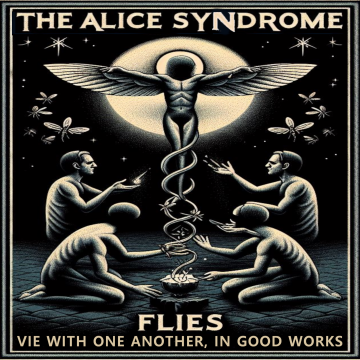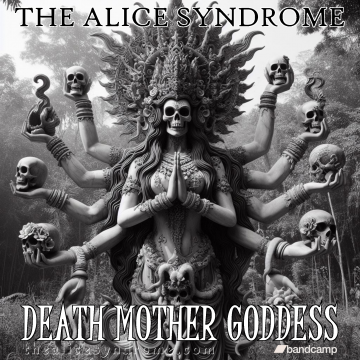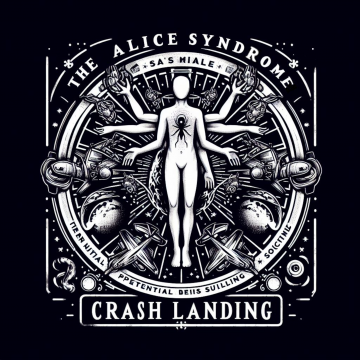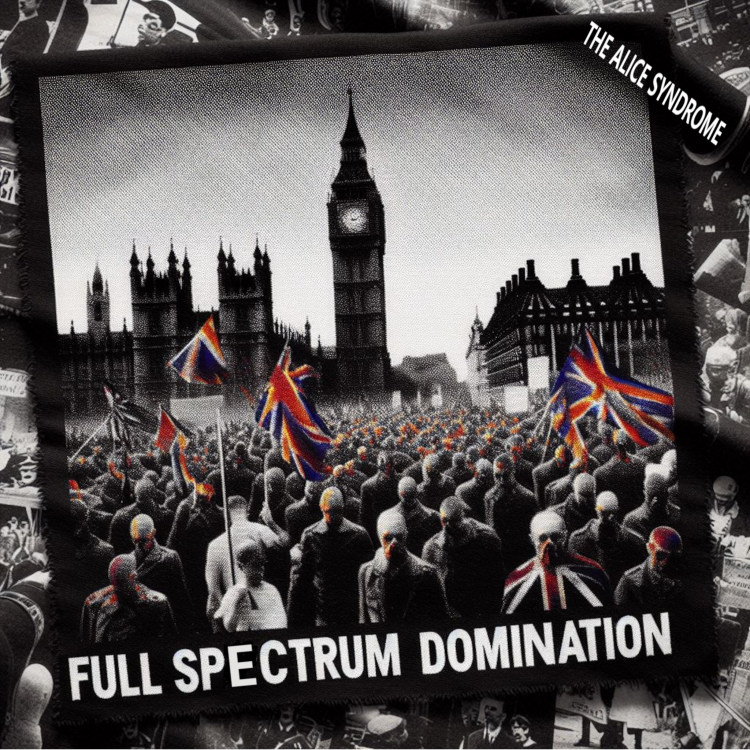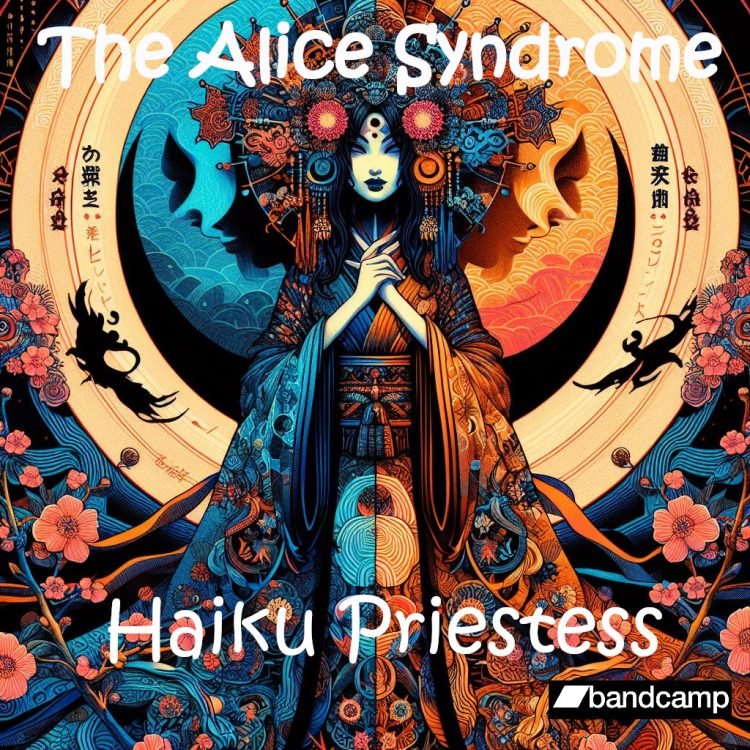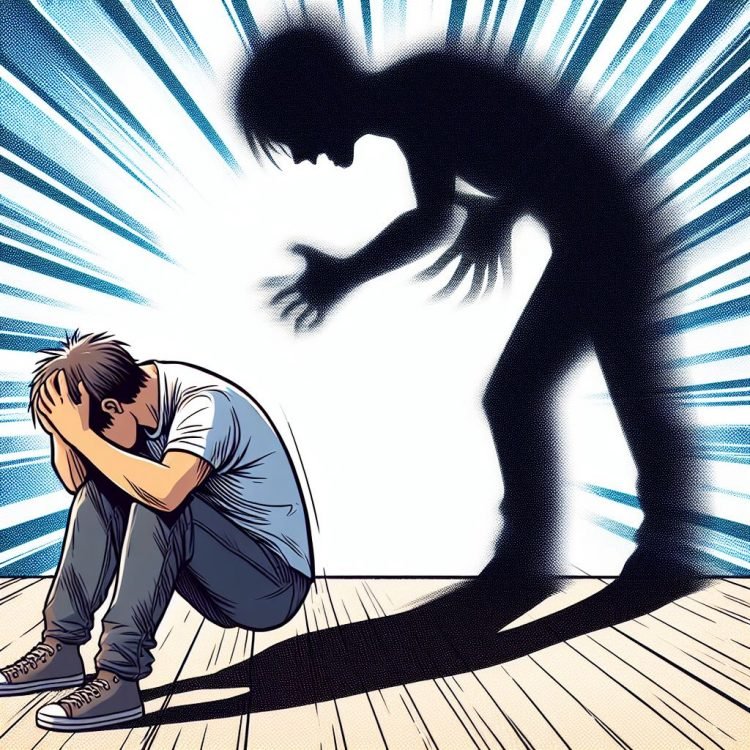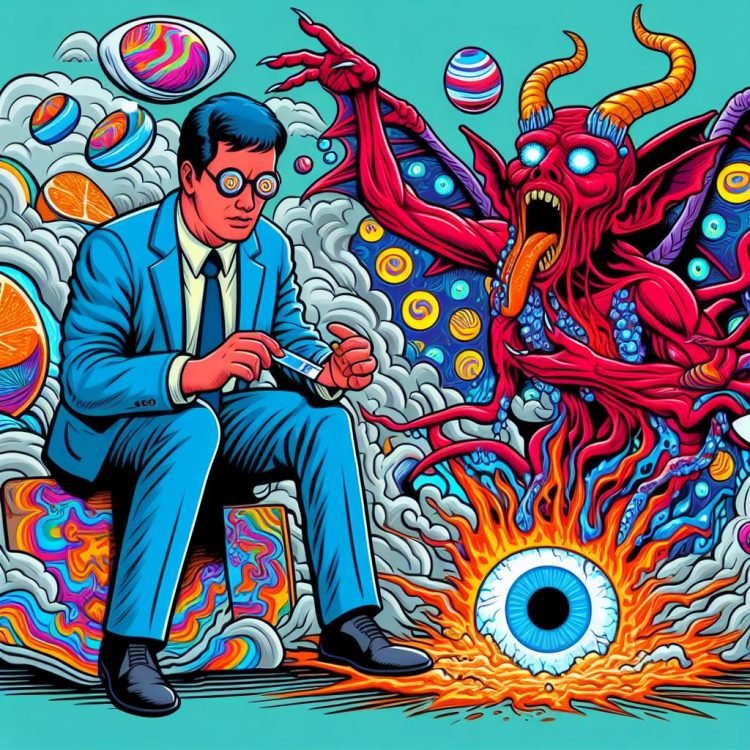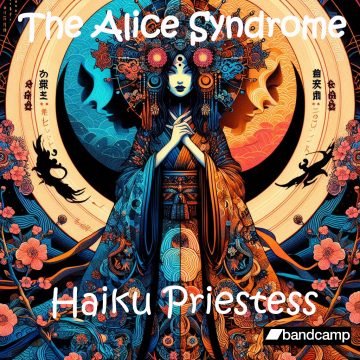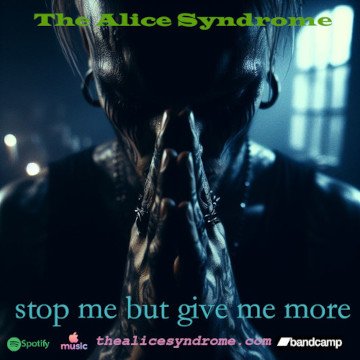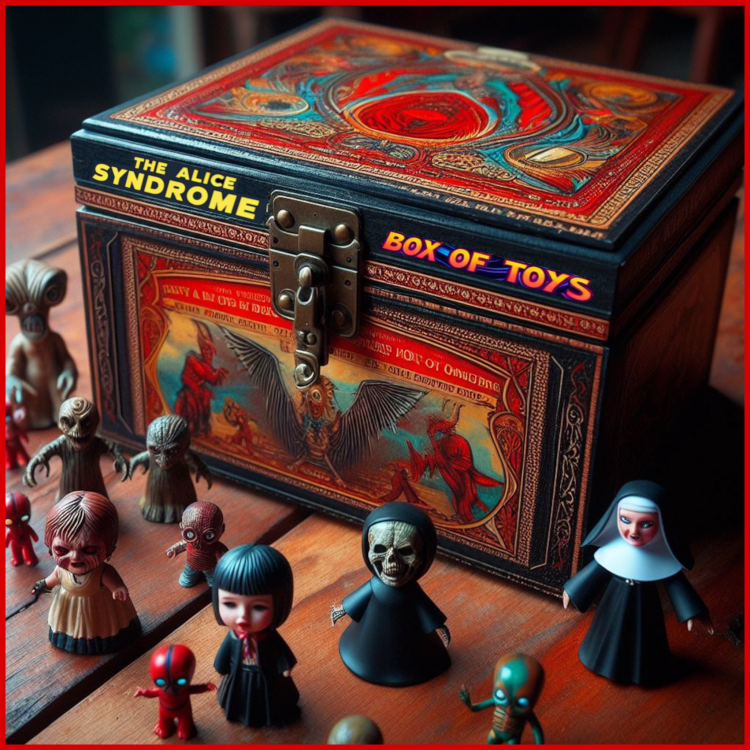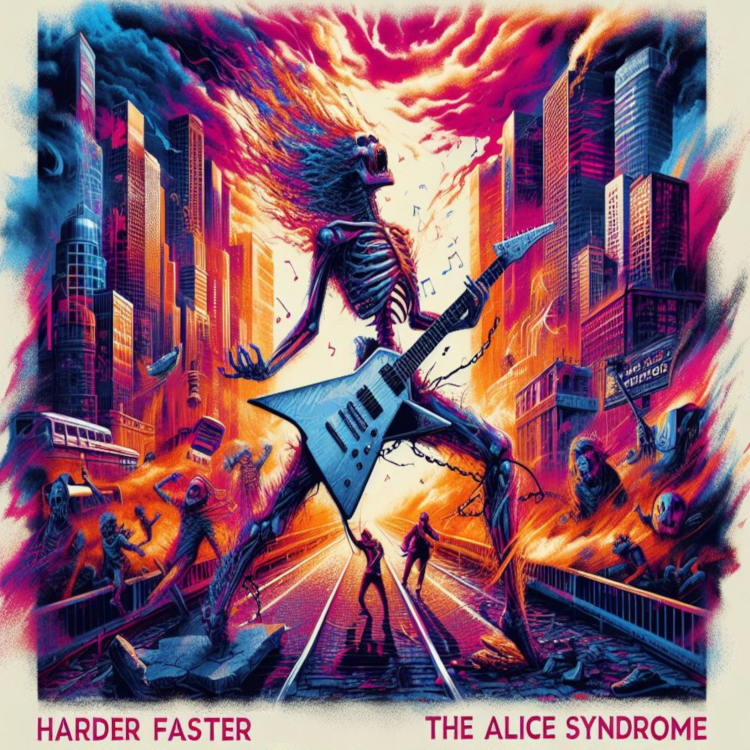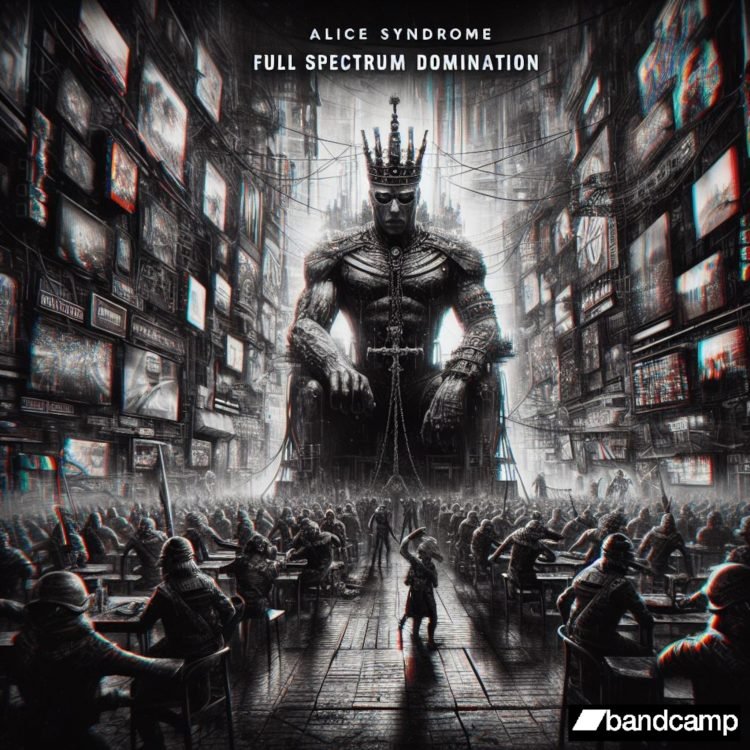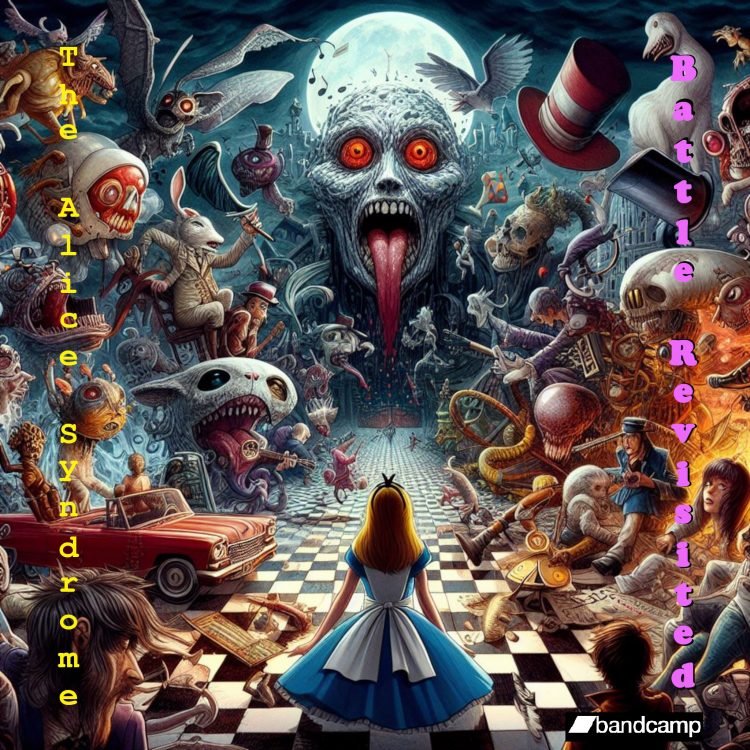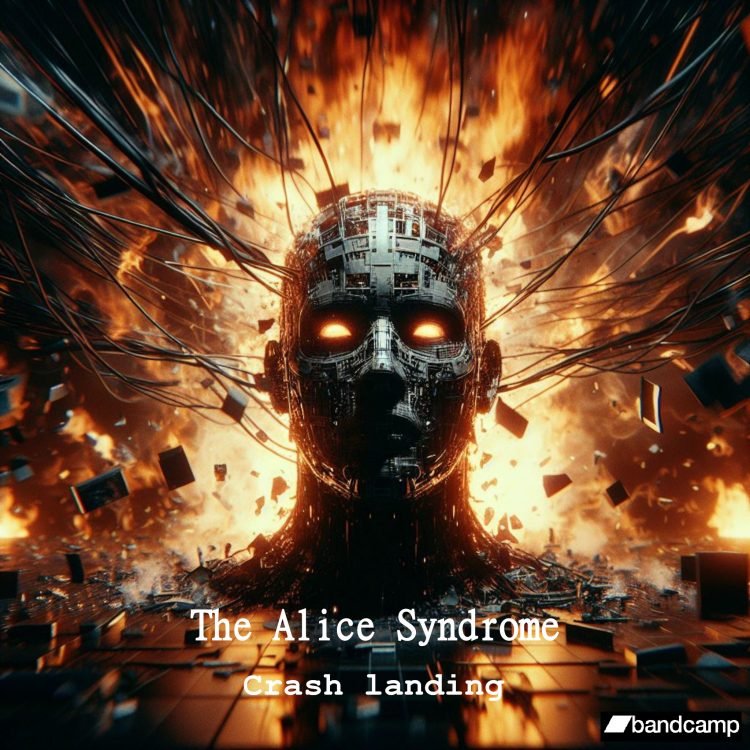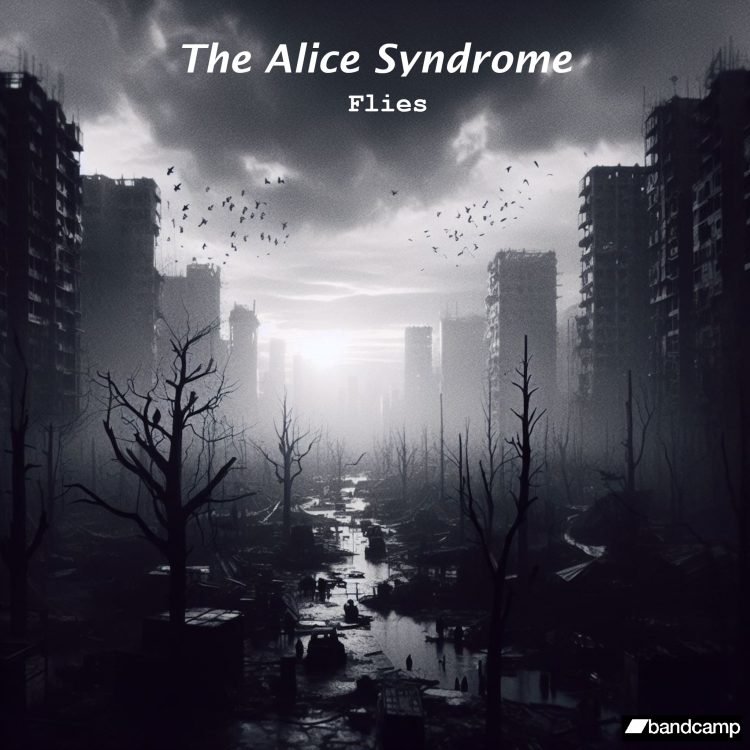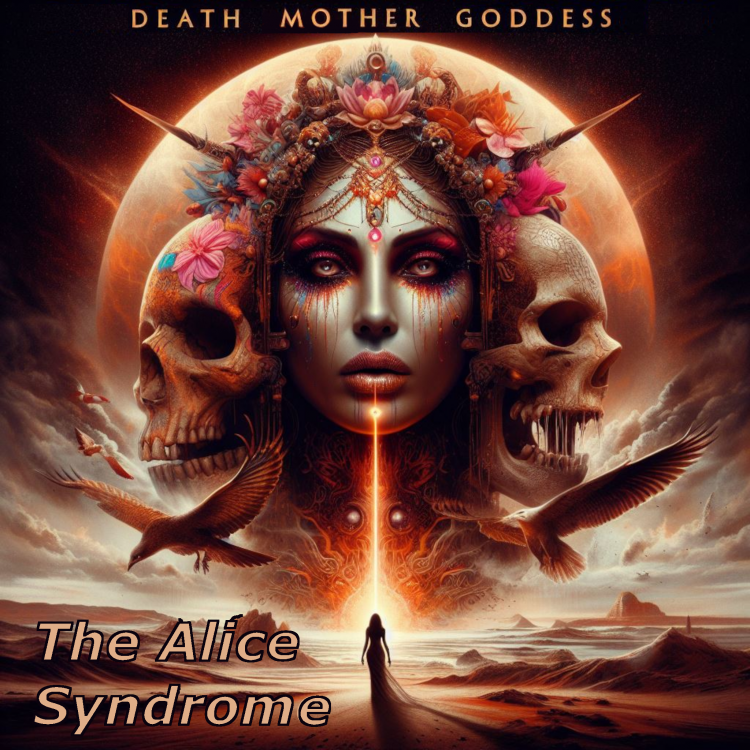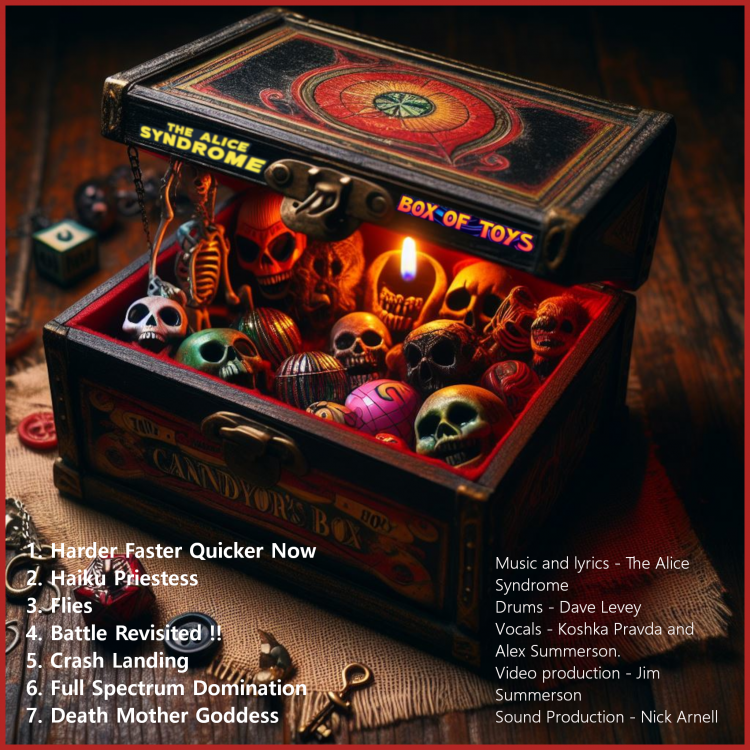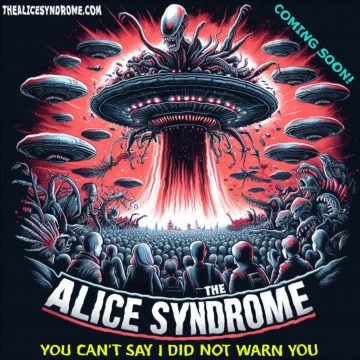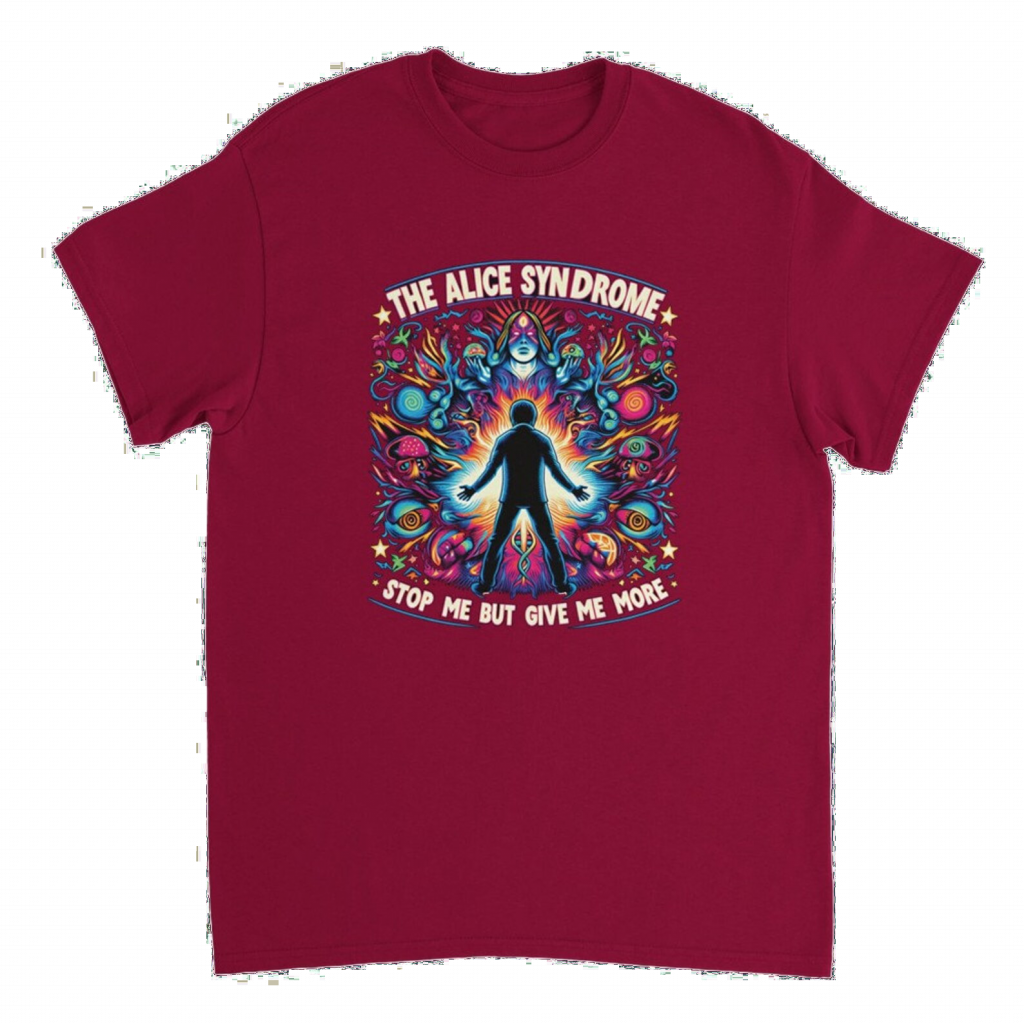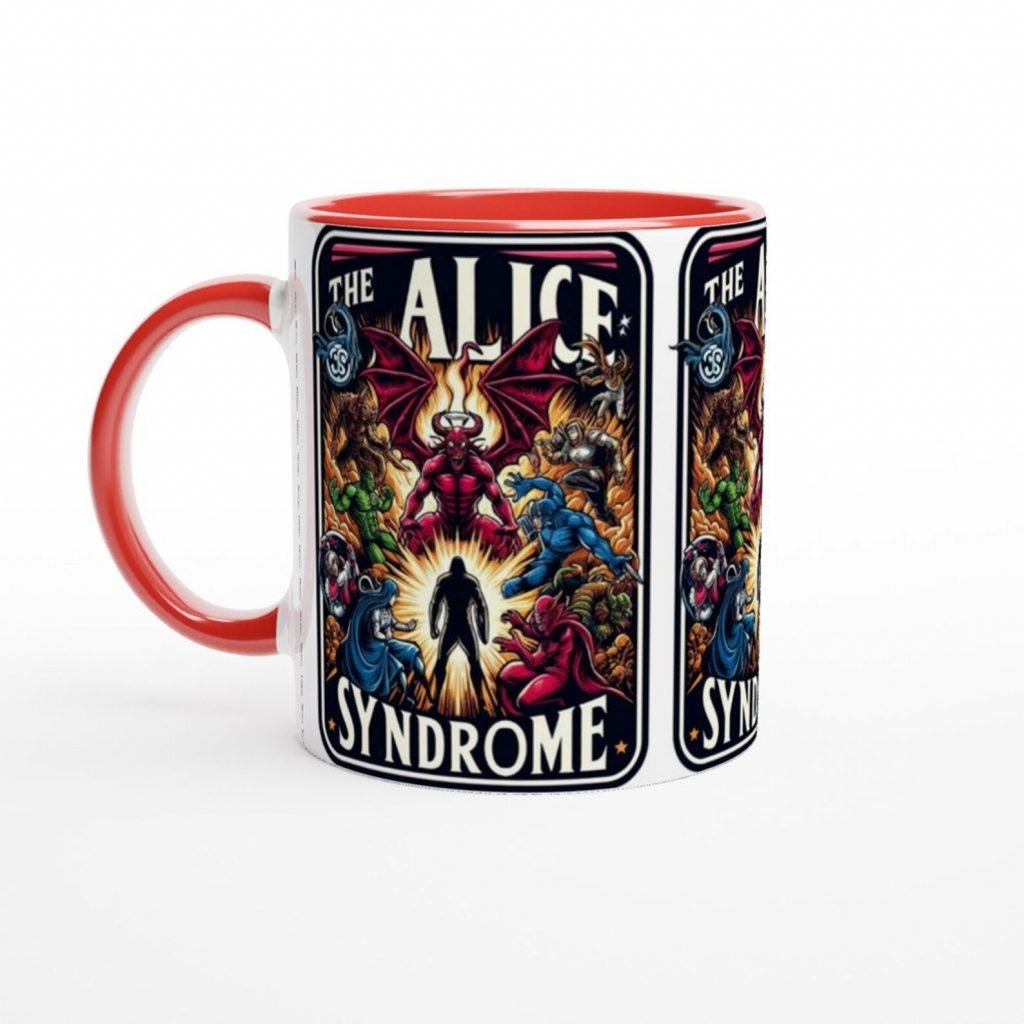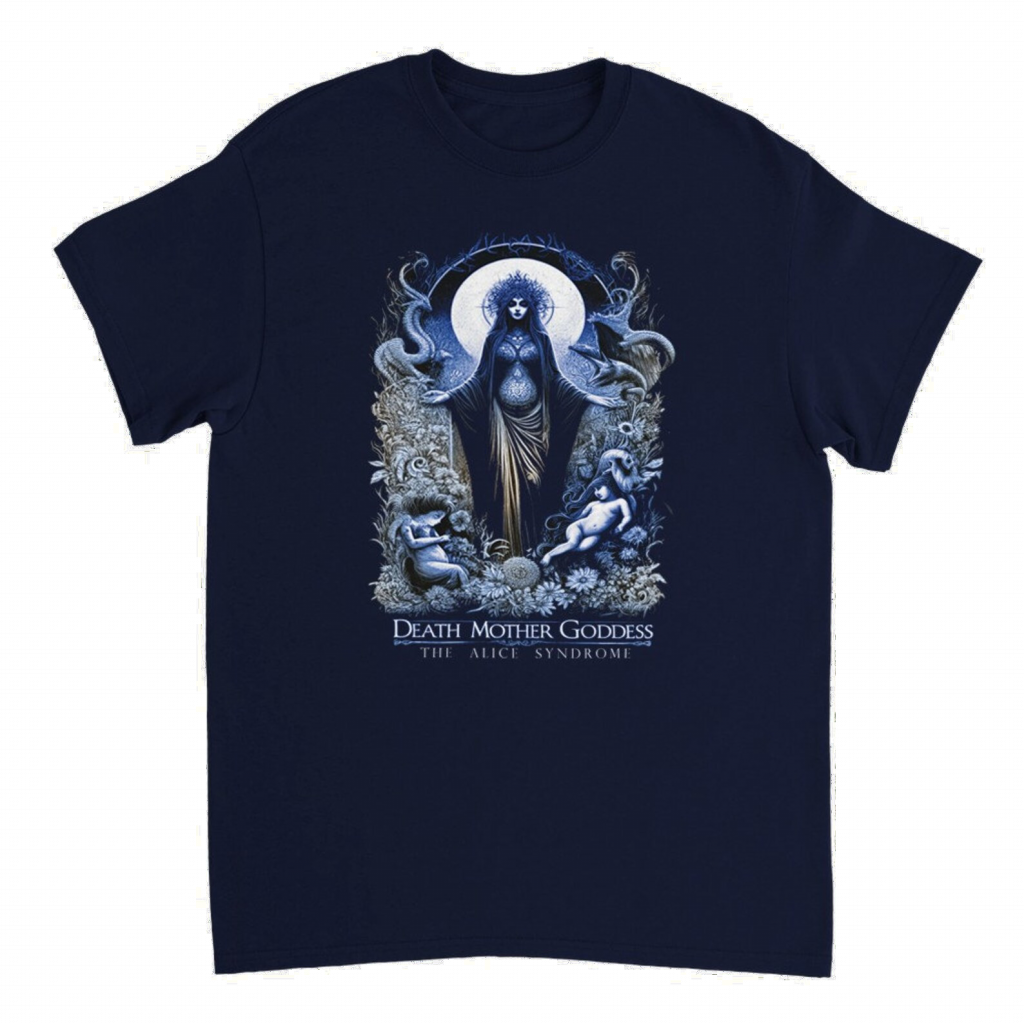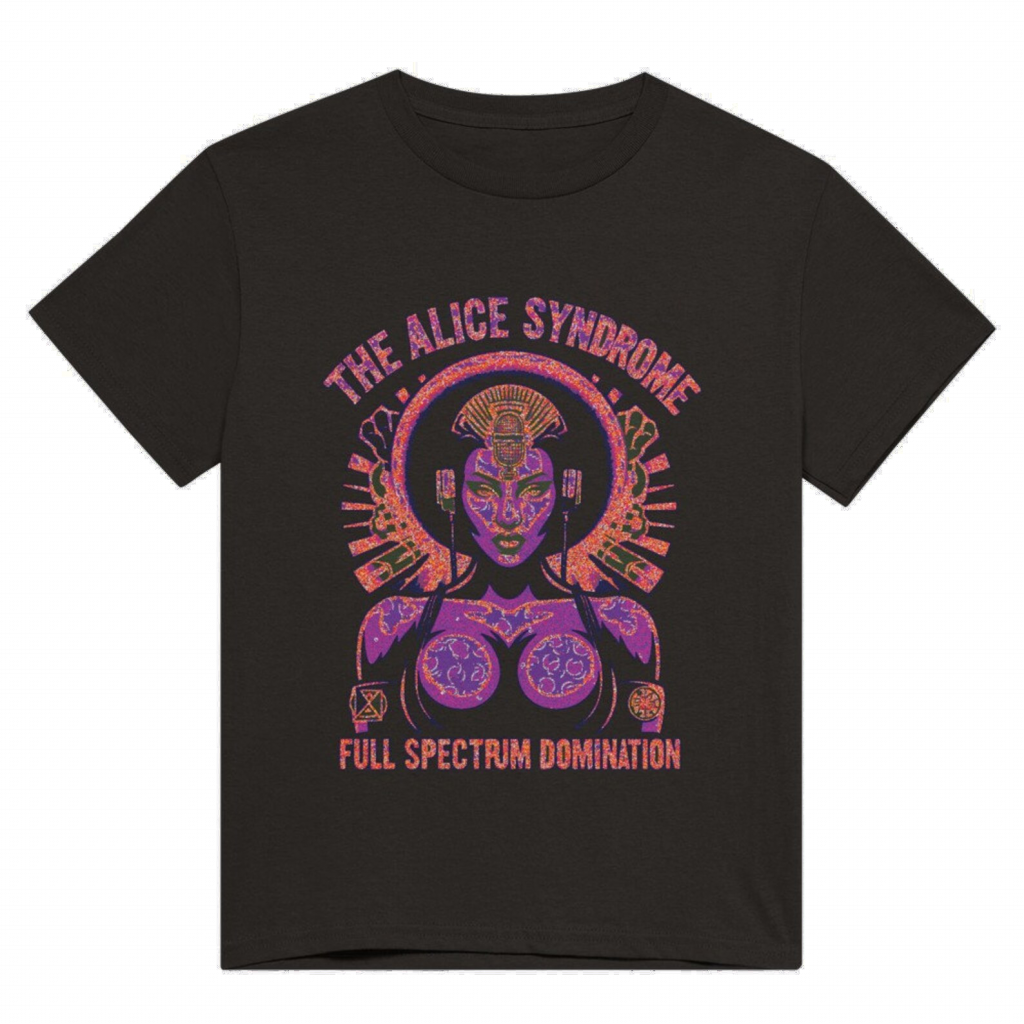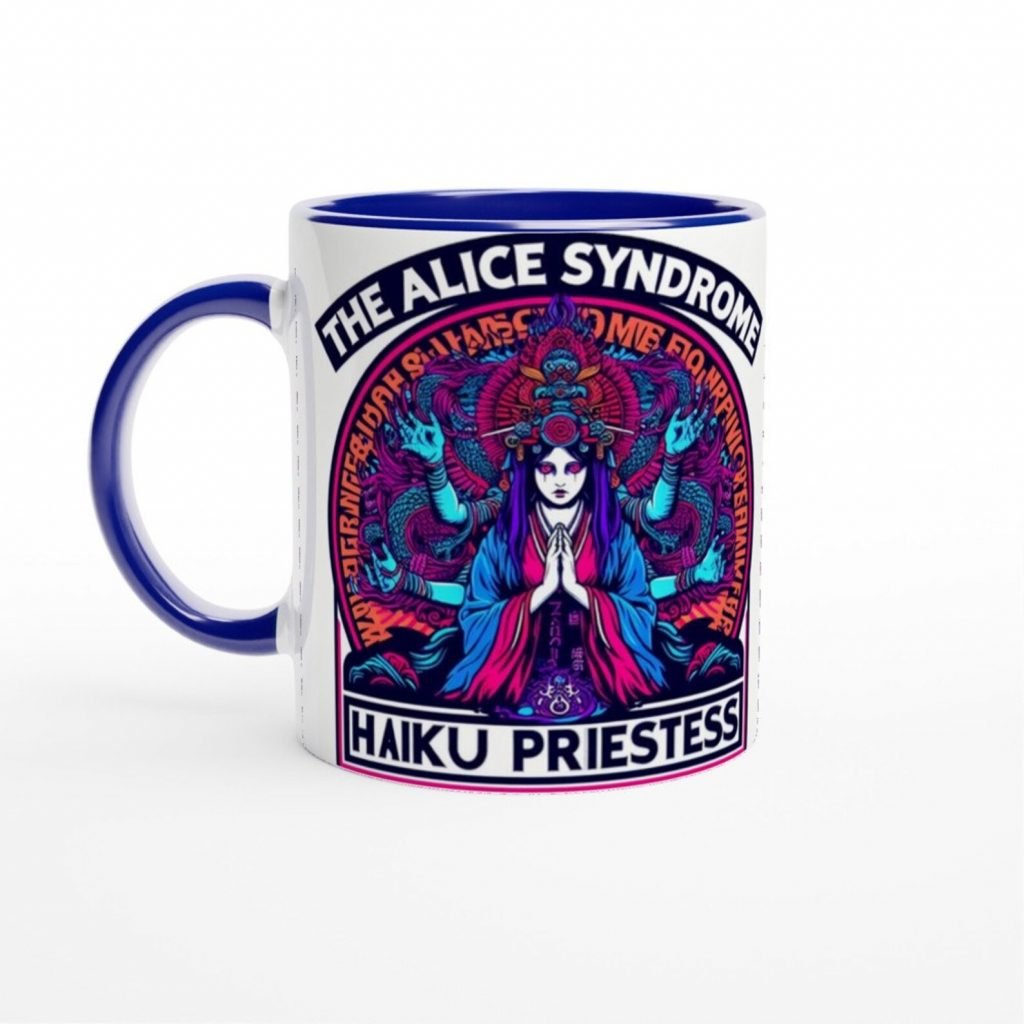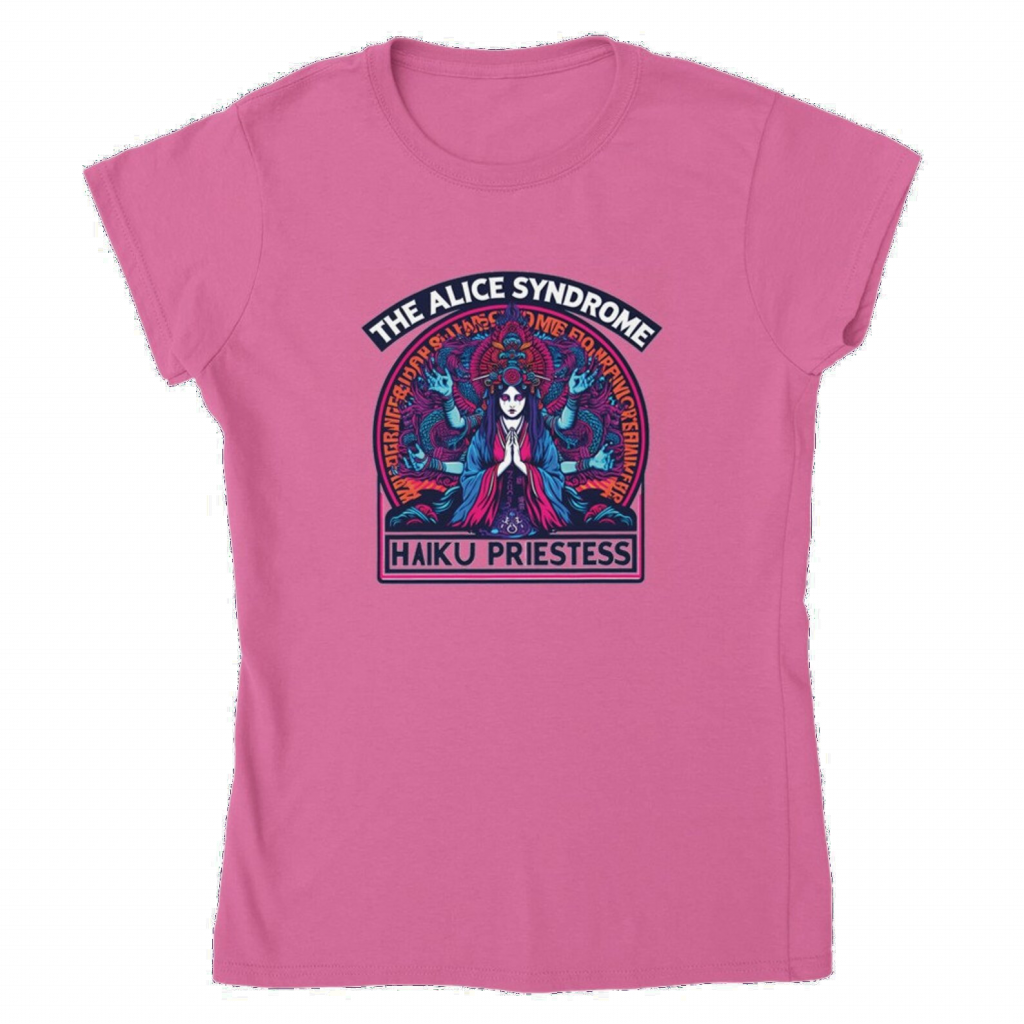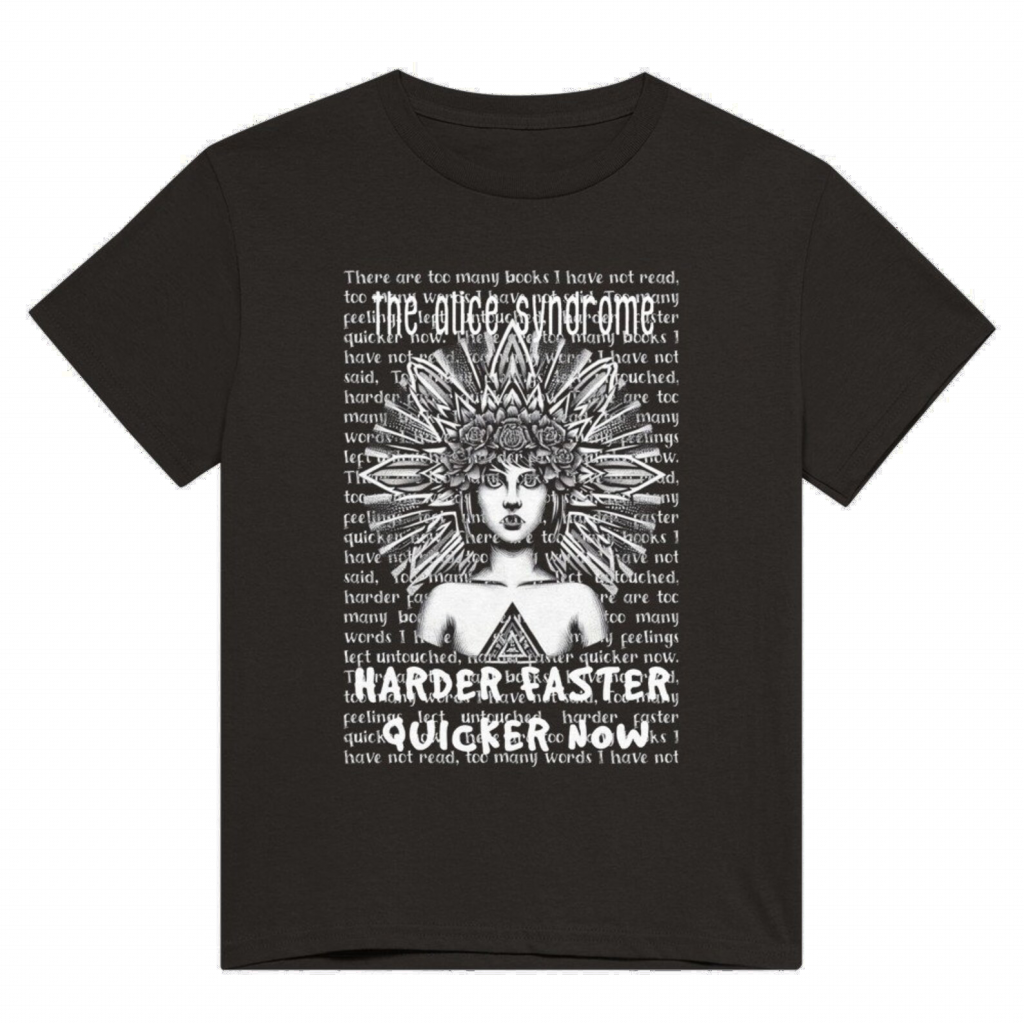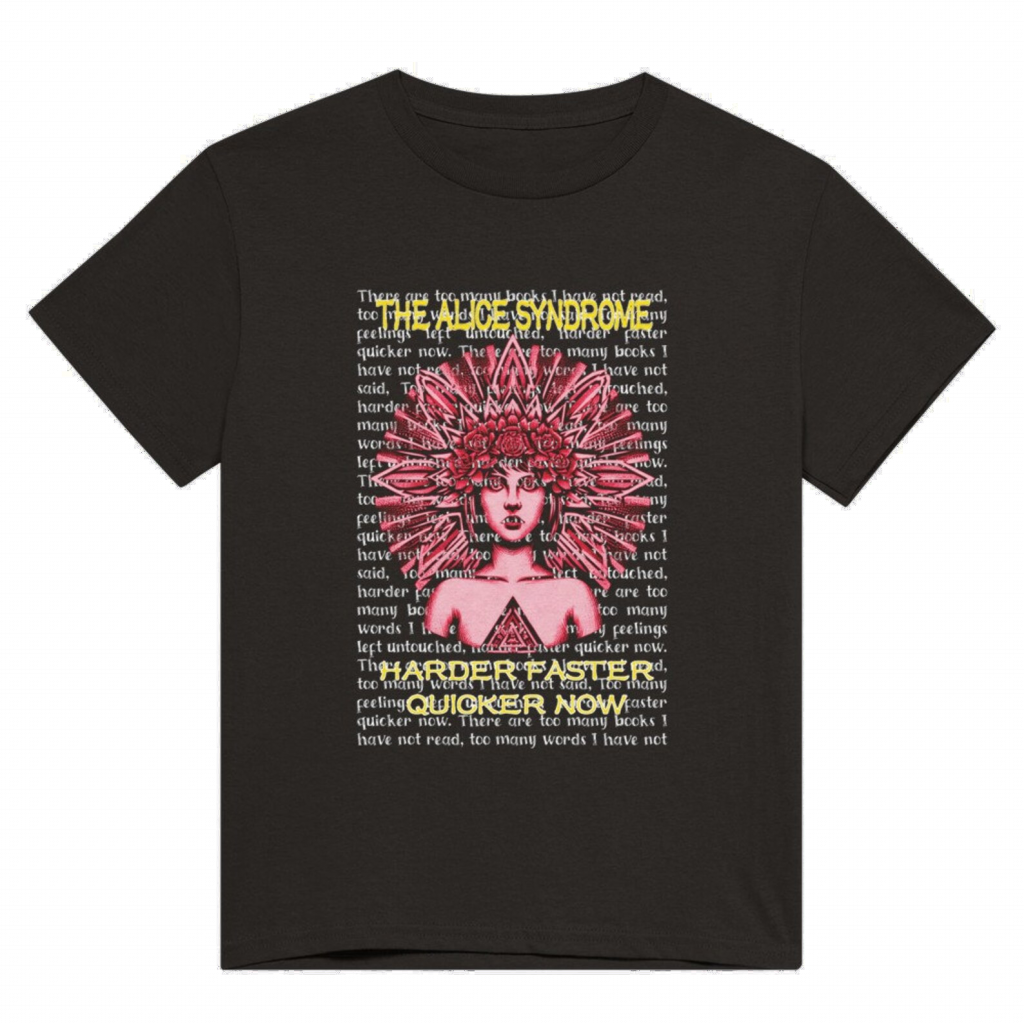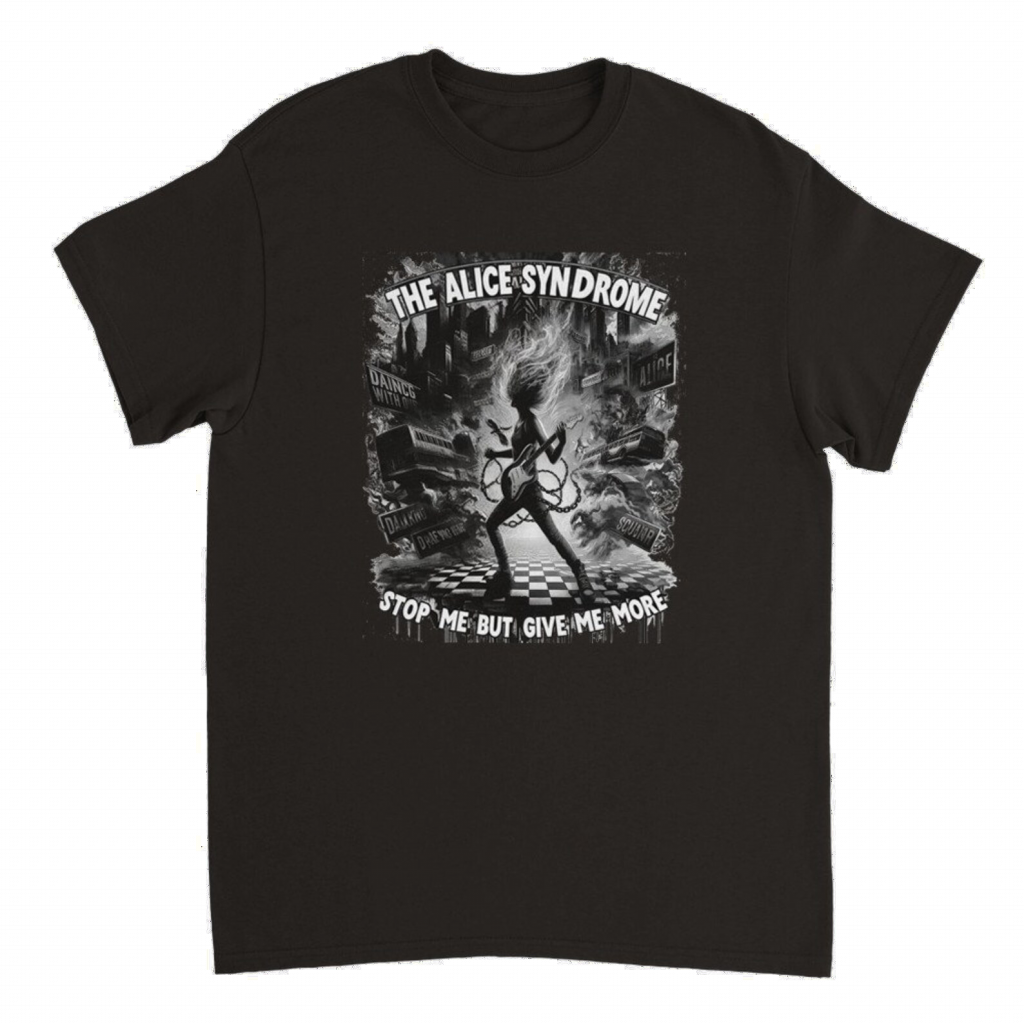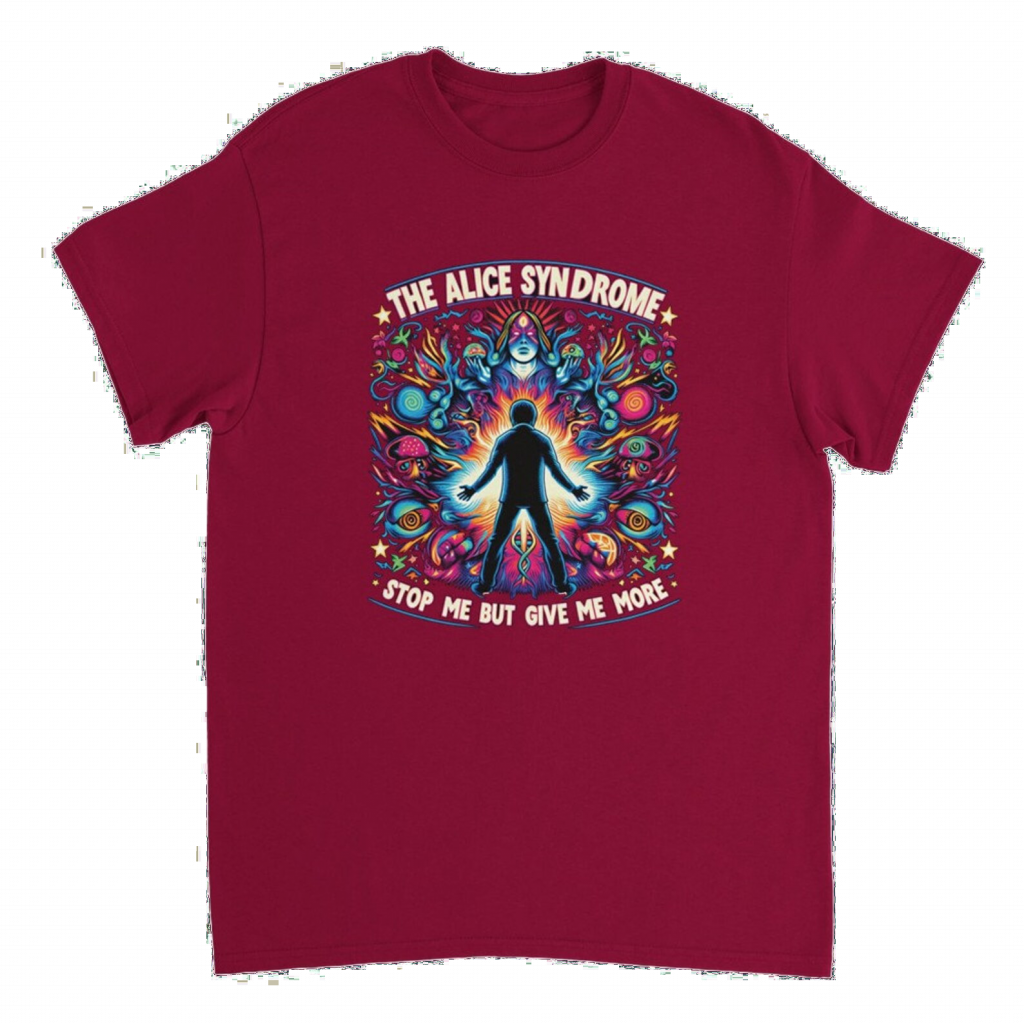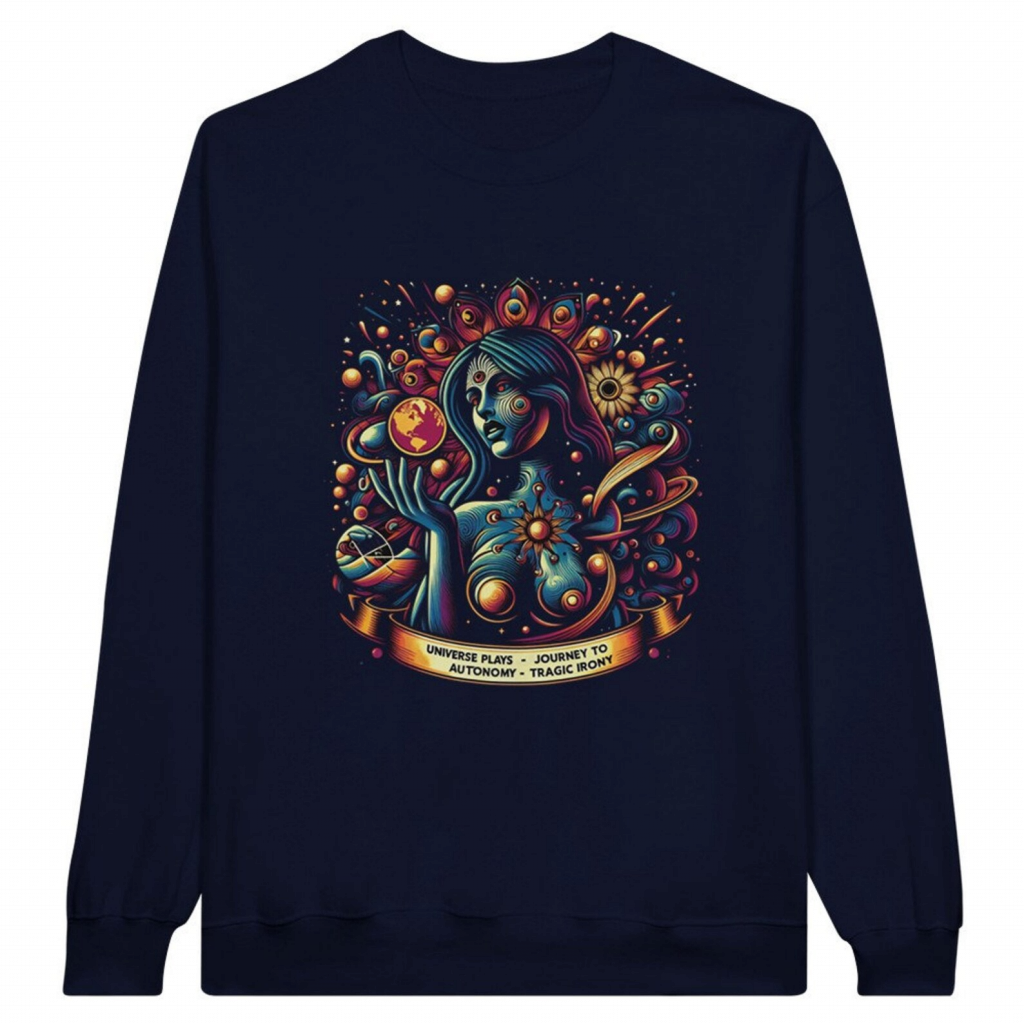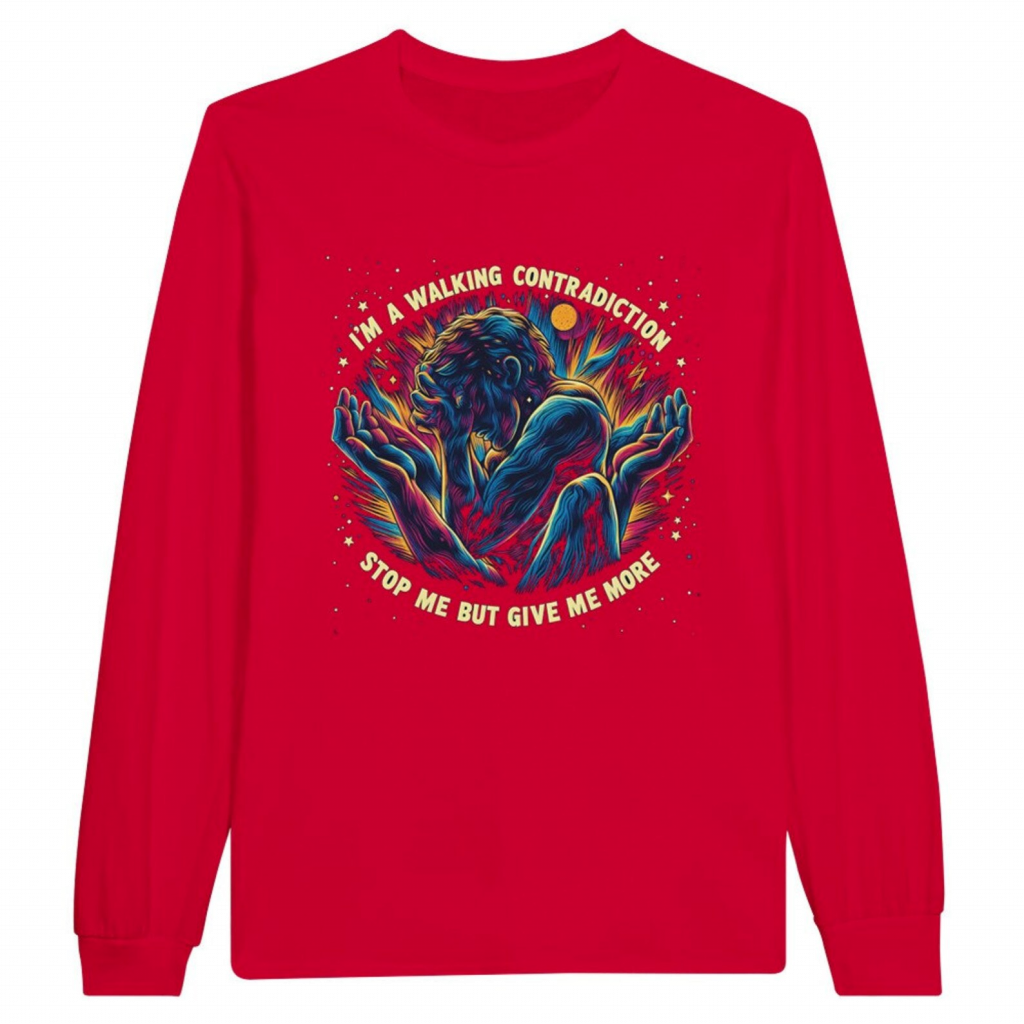This week we are releasing a new version of our track – Battle for my soul. This is part of a series of remixes we are calling the Void Edit. Providing me with a chance to reassess what this new version says to me.
Category: Blogs

Welcome to George’s blog. I play keyboards in the Alice Syndrome, and I’m also very interested in psychology, spirituality and self-transcendence. Groovhead tends to write all our lyrics, which always touch on subjects that hit deep into my interests.
This week we are releasing a new version of our track – Battle for my soul. This is part of a series of remixes we are calling the Void Edit. Providing me with a chance to reassess what this new version says to me. As I see it, every expression of self is an attempt to answer a question which in itself can be unexpressed. So I like it when we take another look at a track and I get to ask what I was trying to say here?
I listened to the track, and the first this I thought, is that through it, we are revisiting that internal duality of the combination of the desire to have full freedom, combined with the insecurity that once free, there is no-one to tell us what to do, or if our decisions are correct.
This inquiry into the human psyche’s paradoxical yearning for absolute autonomy, juxtaposed with the trepidation of unguided decision-making, is a profound one. This internal conflict is explored within various psychological and philosophical frameworks. Existentialism, for instance, delves into the essence of human freedom and the inherent responsibility that accompanies it, highlighting the angst that arises from making choices without external direction.
Similarly, humanistic psychology examines the individual’s pursuit of self-actualization and the challenges encountered in achieving it without reliance on authoritative guidance. These disciplines affirm that while freedom is a fundamental human aspiration, it is often accompanied by a sense of disquietude regarding the correctness of one’s choices in the absence of societal or authoritative validation.
Through our video, we are also signalling the reflection of this internal paradox as it can appear through externalisation, through the fight for freedom, counterbalanced by societies need to control us, to protect us, apparently, from ourselves.
“I will not comply” says our vocalist, but also, she wants reassurance. Thus, we have the needs to the child emerging into adolescence coming into focus, we see the interplay as the dance of growing up continues, as the responsibility for the care of the child, passes from the parent to the emerging adult.
From a void perspective, we have to take ourselves back to the ultimate void thought: That nothing exists, that somehow, everything that we perceive, is a figment of our own imagination, made up to comfort ourselves about this stark fact, that we are the awareness of the nothing, reinventing itself in its dream of existence.
Whilst this is a thought, which, on the surface, can be deeply disturbing, it does lead to an ultimate kind of freedom – The freedom of the knowing that everything that exists, and you experience is of your own creation.
However, this ultimate freedom comes with another issue, that of responsibility. If we are creating the reality we perceive, then we must take responsibility for that creation, yet, how do we know our decisions are the right ones?
This leads to a void creation myth I’ve just imagined. That of the void deciding it would look into itself deeply, and find itself, and in the process, what it found was a huge mass of disconnected things, like an infinite jigsaw. The void saw that these were components of an unrealised self, that each of these components did not work because they did not trust each other and were not talking, so in the mind of the void, it created a game-space where those components could get to know themselves and others, where they could work out their differences without knowing their true purpose until right at the end.
This creation myth then goes on to explain that the void decided to sort these components out into orders, and the first separation was the dark ones, and the light ones. At that point, it was all that was known. But by grouping those aspects of its future self together like this, an oppositional kind of internal logic turned into a force of insight, allowing the void to separate out further colours, and with each colour came names and descriptions. Pieces of a new unfolding picture, not of the ultimate self, but of the development flow needed for the void to think itself real.
Relating this to the theme of our song, then this could be reflecting the internal mindset of the void, realising that the God it needed to believe in, can finally be accepted as being one of its own creation. A stepping stone belief to the understanding that there is no God but self.
Can the void trust itself and it’s components to take the right decisions? Who will judge what is wrong and what is right, if the guidance the void followed to get to this point, turns out to have come from self, in a way that the void itself cannot explain, but feels it will be explained, if it can correctly connect its components, and understand the self it feels it was designed to become.
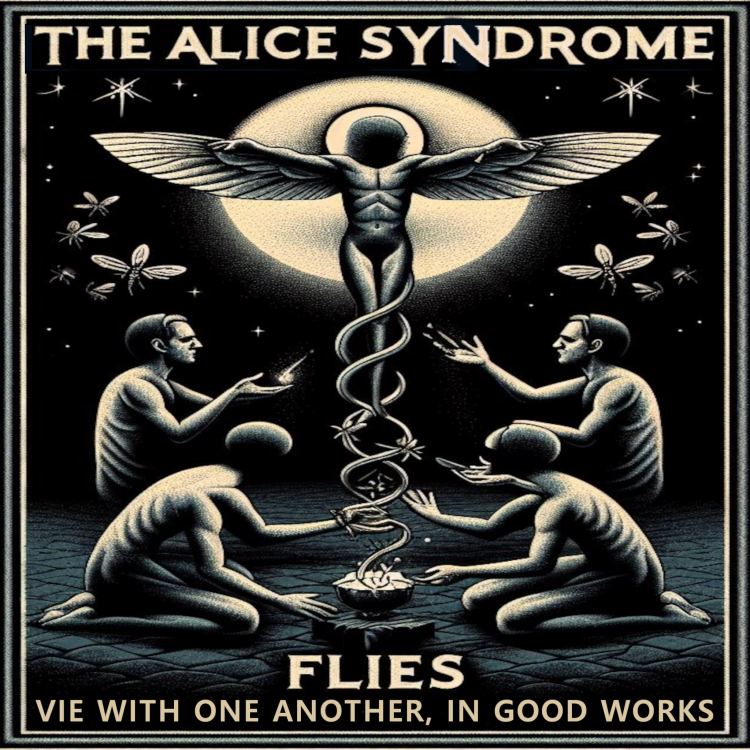
Welcome to George’s blog. I play keyboards in the Alice Syndrome, and I’m also very interested in psychology, spirituality and self-transcendence. Groovhead tends to write all our lyrics, which always touch on subjects that hit deep into my interests.
Lyrics I submit to the lord of the universe Wherever you are, death will overtake you Give glad tidings to those who patiently proceed By the token of time through the ages – Islamic break – Vie with one another, in good works Wherever you are, death will overtake you I submit to the lord of the universe Give glad tidings to those who patiently proceed Who so interveneth, in a good cause – Islamic break – Wherever you are, death will overtake you I submit to the lord of the universe I submit to the lord of the universe
Though you are in towers raised high
Vie with one another, in good works
By the token of time through the ages
Vie with one another, in good works
Verify, man is in lust
Except that which have faith
And do righteous things
And join together, in mutual teachings of truth
And of patience
And of constancy
Give glad tidings to those who patiently proceed
Though you are in towers raised high
Vie with one another, in good works
Shall have the reward thereof
And who so interveneth in an evil cause</span>
Will bear the consequences thereof
By the token of time through the ages
Though you are in towers raised high
The lyrics for our song, Flies, are inspired by the Islamic faith and the Quran. The lyrics include several verses that are either direct quotations or paraphrases from the Quran, such as “Wherever you are, death will overtake you / Though you are in towers raised high” (Quran 4:78), “Vie with one another, in good works” (Quran 5:48), “By the token of time through the ages / Verify, man is in lust / Except that which have faith / and do righteous things / and join together, in mutual teachings of truth / and of patience / and of constancy” (Quran 103:1-3), and “Who so interveneth, in a good cause / shall have the reward thereof / And who so interveneth in an evil cause, / will bear the consequences thereof” (Quran 4:85) (Ali, 2002). These verses suggest a theme of moral accountability, divine judgment, and human struggle in the face of temptation and evil.
At this point, we have a quote from Groovhead, which explains the thinking behind the track:
“the track flies was written a few years ago against the backdrop of a surging wave of islamaphobia and the demonisation of muslims both here in the uk,and globally .The words are taken directly from the Quran , in an attempt to show Islam not as the rabid death cult as it has been portrayed , but rather as a religion based on love , compassion ,and respect ,however , as with all religions (yes , american christian right wing fundamentalists ,were looking at you )words written in good faith and love are so easily corrupted and twisted tothemost evil of ends .This song is not pro islam song ,nor a pro muslim song , rather it is an anti anti muslim song.It is beyond horrendous that this song seems sadly more relevant now with the demonisation and dehumanisation of the palestinian people,whohave endured 75 years of aparthied ,56 years of theloss of their homeland through illegal israeli settlements , a 16 year blockade of gaza , and the ongoing genocide that has left upto 20,000 dead , and rising , the majority of which are women and children , .the alice syndrome rejects all and any religion that cannot respect the most basic human rights of others , and uses the words of their faith and dogma to suppress the rights of others to live in peace , with dignity and respect ,,,, from the river to the sea ,,,,,” groovhead
The song is a provocative and challenging piece of art that explores the themes of mortality, morality, faith, and action from an Islamic perspective. We use verses from the Quran to convey a message and to invite the listeners to reflect on their own beliefs and deeds.
The song begins and ends with the phrase “I submit to the lord of the universe”, which is a declaration of faith and surrender to God’s will. The song then contrasts the inevitability of death with the urgency of doing good works, as instructed by the Quran.
The song also emphasizes the importance of having faith, doing righteous things, and joining together in mutual teachings of truth, patience, and constancy. These are the qualities that distinguish the believers from those who are in lust, or who follow their own desires without regard for God’s guidance. The song also warns against intervening in evil causes, as this will result in negative consequences, while intervening in good causes will bring rewards.
The song Flies is a creative and courageous expression of Islamic values and principles, as well as a critique of the contemporary world that often neglects or opposes them. We use the Quran as a source of inspiration, as well as a tool for communication and education.
References
Ali, A. Y. (2002). The meaning of the Holy Quran. Beltsville: Amana Publications.
Jan 19
George’s Blog: Flies
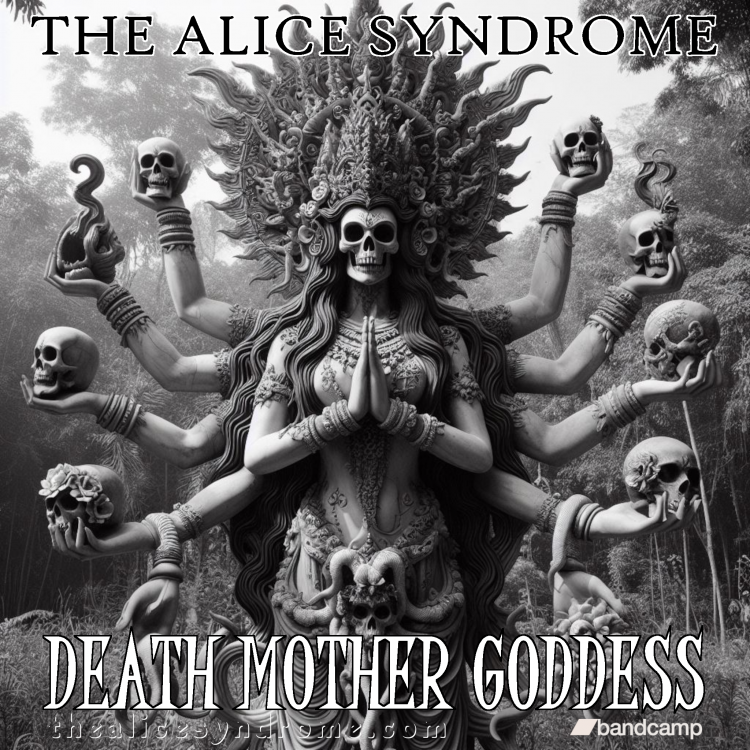
Welcome to George’s blog. I play keyboards in the Alice Syndrome, and I’m also very interested in psychology, spirituality and self-transcendence. Groovhead tends to write all our lyrics, which always touch on subjects that hit deep into my interests.
I think it’s fair to say, that death mother goddess is our darkest track, by quite a long way. In my interpretation, it explores that darkest of inner dialogues, between two aspects of self which hate each other. It’s clearly exploring what could be going on in the mind of a traumatised individual, the voice being heard, one of a dissociated part of her personality.
Trauma is a psychological response to an event or situation that is deeply distressing or overwhelming. It can affect a person’s sense of safety, trust, and self-worth. Trauma can also disrupt the normal functioning of the brain, especially the parts that are involved in memory, emotion, and identity.
One of the ways that the brain tries to cope with trauma is by dissociating, which means separating or disconnecting from the traumatic experience. Dissociation can take many forms, such as feeling numb, detached, or unreal; having gaps in memory; or switching to different personality states. It can help a person survive the trauma in the short term, but it can also interfere with their ability to process and heal from it in the long term.
Dissociation can also affect how a person relates to themselves and others. When a person dissociates, they may lose touch with their own thoughts, feelings, and needs. They may also have difficulty recognizing and regulating their emotions, which can lead to negative voices or thoughts. Negative voices or thoughts are internal dialogues that are critical, hostile, or harmful. They can undermine a person’s self-esteem, confidence, and well-being. Negative voices or thoughts can also trigger or worsen symptoms of anxiety, depression, or post-traumatic stress disorder (PTSD).
Dissociation and negative voices or thoughts are common reactions to trauma, but they are not healthy or helpful in the long run. They can prevent a person from living a fulfilling and meaningful life.
Mental health is a topic that affects many people, especially in the music industry. According to Help Musicians UK (2017), 71% of musicians have experienced anxiety and panic attacks, and 68% have suffered from depression. However, there is still a stigma and a lack of understanding around mental health issues, which can make people feel isolated, hopeless, and afraid to seek help. As a musician who has struggled with hearing voices, I know how hard it can be to cope with this condition. Voices can make you feel alone, depressed, and suicidal. They can also interfere with your creativity, performance, and relationships. That is one of the reasons we created this track, death mother goddess, to express this experience and to raise awareness of this issue.
This track is not meant to be easy listening. It is dark, intense, and disturbing. But it reflects the reality of many people who live with voices every day. They often face rejection, discrimination, and violence from society, even from their own friends and family. They are told that they are crazy, dangerous, or possessed. Likewise, they are forced to hide their voices or to take medication that may not work or have harmful side effects. They are denied the opportunity to explore the meaning and origin of their voices, or to find ways to cope with them that suit their needs and preferences.
But there is hope. There are many musicians who have been open about their mental health challenges and who have used their music as a way of healing and empowering themselves and others. For example, Craig David has spoken about his battle with anxiety and how he overcame it through therapy and meditation (BBC Newsbeat, 2016). Laura Mvula has shared her experience of living with bipolar disorder and how music helped her cope with depression (The Guardian, 2016). Tom Grennan has revealed his struggle with addiction and how he used music as a form of therapy (NME, 2021). These are just some of the artists who have been actively campaigning for mental health awareness and support in the music industry and beyond.
There are also many organisations and resources that can help musicians with their mental health. For instance, Music Minds Matter is a free 24/7 helpline run by Help Musicians for everyone in the music industry (Help Musicians UK, n.d.). Music Support also runs a helpline for anyone in the music industry struggling with ill mental health and/or addiction (Music Support, n.d.). The British Association for Performing Arts Medicine (BAPAM) connects performing artists and musicians with free specialist health support (BAPAM, n.d.). These are just some of the services that are available for musicians who need help.
The aim of this track is not to glorify or romanticise mental illness, but to challenge the stereotypes and stigma that surround it. It is also to show solidarity and compassion to those who suffer from it. It is to say that you are not alone, you are not broken, you are not hopeless. You are a human being with a unique voice and a valuable story. You deserve respect, understanding, and support. Furthermore, you deserve to live a fulfilling and meaningful life.
References
BBC Newsbeat (2016). Craig David: ‘Anxiety made me feel paranoid’. Retrieved from https://www.bbc.co.uk/news/newsbeat-37468541
BAPAM (n.d.). British Association for Performing Arts Medicine. Retrieved from https://www.bapam.org.uk/
Help Musicians UK (2017). Can Music Make You Sick? Retrieved from https://www.helpmusicians.org.uk/assets/publications/files/can_music_make_you_sick_summary.pdf
Help Musicians UK (n.d.). Music Minds Matter. Retrieved from https://www.helpmusicians.org.uk/health-welfare/mental-health/music-minds-matter
Music Support (n.d.). About Us. Retrieved from https://www.musicsupport.org/about-us/
NME (2021). Tom Grennan: “I’ve been through addiction – music was my form of therapy”. Retrieved from https://www.nme.com/features/tom-grennan-ive-been-through-addiction-music-was-my-form-of-therapy-2877310
The Guardian (2016). Laura Mvula: ‘I don’t know what happy looks like’. Retrieved from https://www.theguardian.com/music/2016/jun/12/laura-mvula-the-dreaming-room-interview
Jan 19
George’s Blog: Death, Mother, Goddess
This is George’s Blog at The Alice Syndrome website, about our track, death mother goddess.
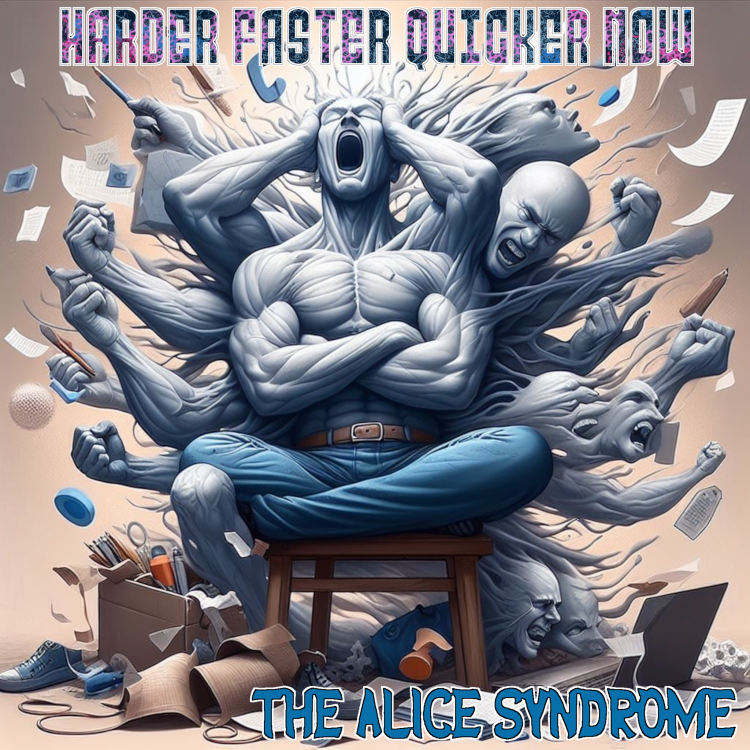
Welcome to George’s blog. I play keyboards in the Alice Syndrome, and I’m also very interested in psychology, spirituality and self-transcendence. Groovhead tends to write all our lyrics, which always touch on subjects that hit deep into my interests.
There are too many books I have not read Take the knife and mark my skin Warning signs will go unnoticed I want more days so I have time
too many words I have not said
Too many feelings left untouched
Harder faster quicker now
Lessons learnt will be forgotten
As I plot another process
plot another path of torment
harder faster quicker now
As my soul is spread so thin
Drain me slowly, take it all
Harder faster quicker now
As I work on through the process
Choosing not to see the dangers
Harder faster quicker now
To reclaim what is rightfully mine
Though it never can be returned
Harder faster quicker now

The lyrics of harder faster quicker now, express a sense of urgency, frustration and self-destruction. The narrator feels overwhelmed by the things they have not done, the emotions they have not felt, and the life they have not lived.
Many people experience a sense of anxiety or guilt when they think about the tasks they have not completed or the goals they have not achieved. This is a common psychological phenomenon that can affect anyone at some point in their life.
There are various factors that can contribute to this feeling, such as unrealistic expectations, perfectionism, procrastination, stress, or lack of time management skills.
There are also effective strategies to cope with this feeling and reduce its negative impact on one’s well-being and productivity. Some of these strategies include prioritizing the most important or urgent tasks, breaking down large projects into smaller and manageable steps, setting realistic and achievable goals, rewarding oneself for accomplishments, seeking help or support when needed, and practising self-compassion and mindfulness.

As the lyrics continue, it becomes clear they resort to a compulsive and reckless behaviour, ignoring the consequences and the warnings. They inflict pain on themselves, both physically and mentally, as a way of coping with their dissatisfaction and emptiness.
Negative coping is a term that describes the use of maladaptive strategies to deal with stress or emotional distress. These strategies may provide temporary relief or distraction, but they often have harmful consequences in the long term. Examples of negative coping include substance abuse, self-harm, gambling, binge-eating, or excessive spending.
Negative coping can be seen as a form of compulsive and reckless behaviour because the person ignores the negative effects of their actions on themselves and others. They may also disregard the warnings or advice from their friends, family, or professionals who try to help them. This can lead to a vicious cycle of increasing stress, emotional pain, and unhealthy behaviour.
Negative coping can sometimes be overcome by learning and applying positive coping skills, such as relaxation, exercise, meditation, hobbies, or seeking support. Positive coping skills can help reduce stress, enhance well-being, and improve the quality of life. However, there can be underlying issues that drive this coping behaviour, often making it all the more dangerous and difficult to manage for the individual concerned.
As the lyrics continue, the individual also seems to have a delusional hope of reclaiming what they have lost, even though they know it is impossible. The chorus repeats the phrase “harder faster quicker now” as a mantra that reflects their obsession and desperation.

The song can be compared with other songs that deal with similar themes of alienation, self-harm and nihilism. For example, “Hurt” by Nine-Inch Nails (and later covered by Johnny Cash) describes the feeling of being numb and isolated, and the use of drugs and cutting as a way of escaping from reality.

Another example is “Basket Case” by Green Day, which portrays the experience of having a panic disorder and feeling paranoid and out of control. Both songs also use a fast tempo and a distorted sound to convey the intensity and chaos of their emotions.
Jan 19
George’s Blog: Harder Faster
This is George’s Blog at The Alice Syndrome, about the track harder faster quicker now
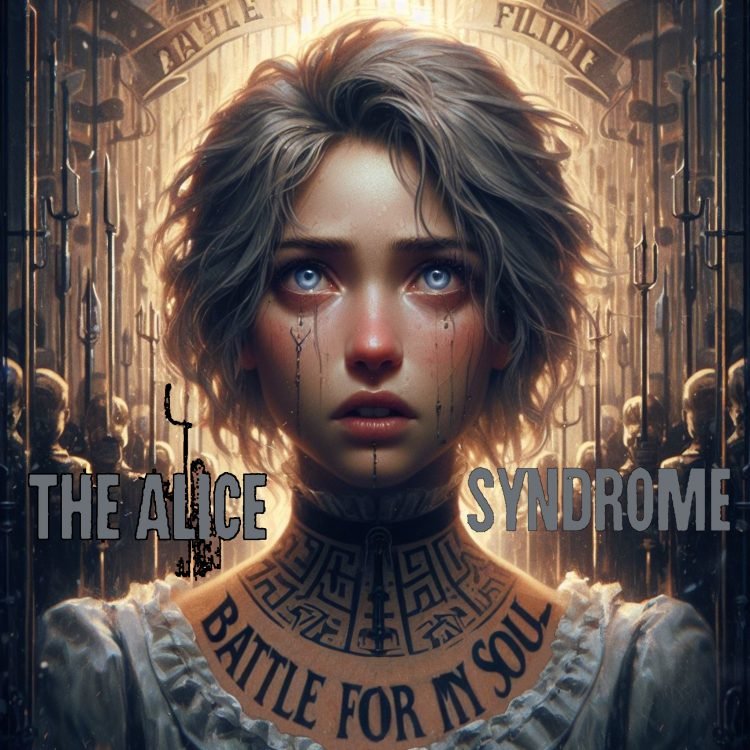
Welcome to George’s blog. I play keyboards in the Alice Syndrome, and I’m also very interested in psychology, spirituality and self-transcendence. Groovhead tends to write all our lyrics, which always touch on subjects that hit deep into my interests.

Lyrics But I will resist in any way I can I will not comply I will not comply Repeats…..
There’s a battle raging in my soul
there are those who would wish to lead me
to satisfy their own agenda’s and aims
To the point where my existence
Becomes an act of resistance
I want you to reassure me
I want you to reassure me
The song, Battle for my soul revisited !!, is a powerful expression of the individual’s struggle against external forces that try to manipulate and control them. The lyrics suggest that the singer is facing a conflict between their own desires and values, and those of others who have different agendas and aims, and exercise control over them. The song declares that these influences will be resisted, even if it means that very existence becomes a form of defiance. The chorus repeats the phrase “I will not comply”, which shows a determination to remain true to self, and also the need for reassurance from others, who can provide understanding and support.
The song can be interpreted as a commentary on the social and political issues of our time, such as the rise of authoritarianism, censorship, propaganda, and surveillance. It proposes that personal freedom and identity are threatened by these forces, and that we have to fight for their rights and dignity.

The song also reflects a common theme in rock music, which is the rebellion against conformity and oppression. Some examples of songs with similar themes are “The Sound of Silence” by Simon and Garfunkel, “Another Brick in the Wall” by Pink Floyd, “Killing in the Name” by Rage Against the Machine, and “Uprising” by Muse.
The world of psychology recognises that often external pressures can cause us to deny and disconnect with our true selves in favour of conforming to the needs of others to feel loved or accepted. This disparity between one’s true thoughts and actions, and the failure to express them, or accept that they are true, is called a lack of self-congruence.
One of the psychological theories that deals with the aspect of human nature related to self-congruence is Carl Rogers’ humanistic theory. According to Rogers, self-congruence is the degree of alignment between one’s self-image, ideal self, and actual experience (Stevenson, 2022). When a person’s self-concept is congruent, they feel authentic and satisfied with themselves. When a person’s self-concept is incongruent, they feel dissatisfied, unhappy, and even mentally ill (Rogers, 1959).
Rogers’ theory of self-congruence assumes that humans have an innate tendency to grow and actualize their potential, which he called the actualizing tendency. However, this tendency can be hindered by external or internal factors that create a gap between the person’s self-image (how they see themselves), ideal self (how they want to be), and actual experience (how they really are). This gap is called incongruence, and it causes psychological distress and maladjustment (Rogers, 1961).
One of the factors that can contribute to incongruence is the presence of conditions of worth, which are expectations or standards that others impose on the person, or that the person internalizes from others, regarding their value or worthiness. For example, a person may believe that they are only worthy of love and acceptance if they achieve certain goals, behave in certain ways, or conform to certain norms. These conditions of worth can conflict with the person’s true feelings, needs, or desires, and thus create incongruence between their self-image and their actual experience (Rogers, 1959).
Another factor that can affect congruence is the degree of unconditional positive regard that the person receives from others, especially significant others such as parents, teachers, or friends. Unconditional positive regard is the acceptance and appreciation of the person as they are, without any judgment or evaluation. When a person receives unconditional positive regard, they are more likely to develop a positive and realistic self-image, and to align their ideal self with their actualizing tendency. When a person receives conditional positive regard, which is based on meeting certain conditions of worth, they are more likely to develop a negative and distorted self-image, and to adopt an ideal self that is incongruent with their actualizing tendency (Rogers, 1961).
Therefore, according to Rogers’ theory, congruence is essential for psychological well-being and optimal functioning. Congruence allows the person to be true to themselves, to express their feelings and thoughts honestly, to pursue their interests and goals freely, and to relate to others authentically. Congruence also facilitates self-actualization, which is the realization of one’s full potential as a human being (Rogers, 1959).
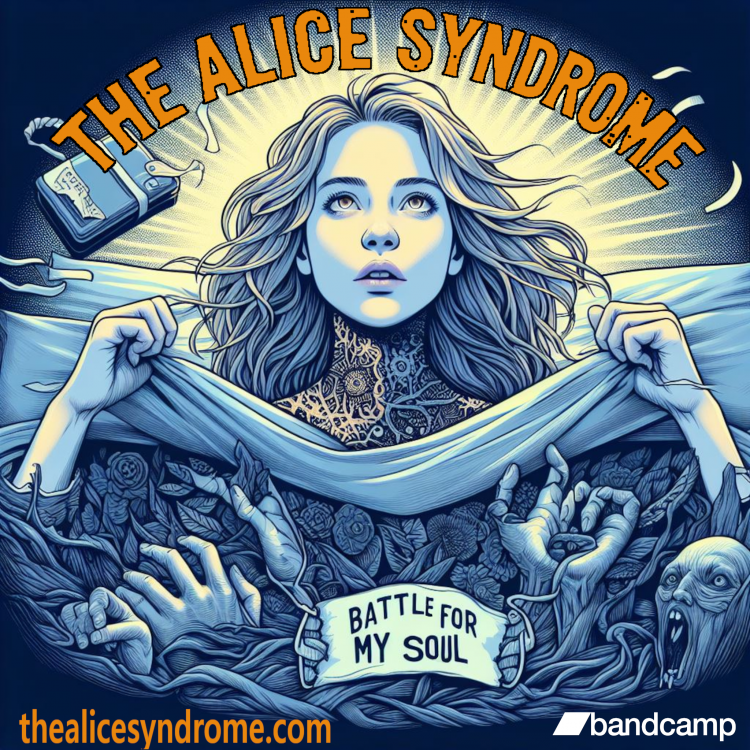
However, achieving congruence can be very challenging for someone who has low self-esteem and confidence, and who faces strong societal pressures to conform or fit in. Such a person may have a negative self-image that does not reflect their true abilities or qualities. They may also have an unrealistic or idealized ideal self that does not match their actual experience or potential. They may feel that they have to hide or change their true selves to be accepted and loved by others. Furthermore, they may experience anxiety, guilt, shame, or anger when they perceive a discrepancy between their self-image, ideal self, and actual experience. They may also resort to various defence mechanisms such as denial, rationalization, projection, or repression to cope with their incongruence (Rogers, 1961).
For example, a person who has low self-esteem and confidence may believe that they are not smart enough, attractive enough, or successful enough to be worthy of respect or admiration. They may also have an ideal self that is based on unrealistic or external standards of beauty, intelligence, or achievement. They may feel pressured by their family, peers, or society to conform to these standards to gain approval or recognition. Furthermore, they may try to hide their perceived flaws or shortcomings by wearing masks or playing roles that are inconsistent with their true-selves. They may also avoid situations or activities that challenge their self-image or expose their incongruence.

Rogers’ theory can be related to the song “Creep” by Radiohead, which expresses the feelings of an outsider who does not fit in with the society’s expectations and norms. The lyrics of the song suggest that the speaker has a low self-image and a high ideal self that they cannot attain. They feel alienated and unworthy of love from the person they admire. He also feels guilty and ashamed of his own existence, as he says, “I don’t belong here” and “I wish I was special”. These are signs of a severe incongruence between his self-image and his ideal self, which leads to a lack of self-esteem and self-acceptance.
Low self-esteem and self-confidence, in my opinion, comes from a lack of wholeness; a lack of inner connection. Meaning the individual concerned will be less self-informed, they will tend to look externally for reassurance, which makes it extremely hard for them not to continue conforming, even though, as Rogers theory suggests, they are likely to feel extremely uncomfortable about the situation, to the point of mental illness. The act of rebellion suggested in this song, is the act of becoming true to self, it is the first stage in the journey of self-actualisation.
References
Rogers, C. (1959). A theory of therapy, personality and interpersonal relationships as developed in the client-centered framework. In S. Koch (Ed.), Psychology: A study of a science. Vol. 3: Formulations of the person and the social context (pp. 184-256). New York: McGraw Hill.
Stevenson, C. (2022). Congruence (Psychology): Definition & Examples (2022). Helpful Professor. Retrieved from https://helpfulprofessor.com/congruence-psychology/
Simon, P., & Garfunkel, A. (1964). The Sound of Silence [Song]. On Wednesday Morning, 3 A.M. Columbia Records.
Waters, R., Gilmour, D., Wright, R., & Mason, N. (1979). Another Brick in the Wall [Song]. On The Wall. Harvest Records.
Morello, T., Commerford, T., Wilk, B., & de la Rocha, Z. (1992). Killing in the Name [Song]. On Rage Against the Machine. Epic Records.
Bellamy, M., Howard, D., & Wolstenholme, C. (2009). Uprising [Song]. On The Resistance. Warner Bros. Records.
Jan 16
George’s Blog: Battle Revisited !!
Welcome to George’s blog about The Alice Syndrome track Battle for my soul revisited !!.

Welcome to George’s blog. I play keyboards in the Alice Syndrome, and I’m also very interested in psychology, spirituality and self-transcendence. Groovhead tends to write all our lyrics, which always touch on subjects that hit deep into my interests.
Stop me but give me more – Bandcamp
Stop me but give me more, is a song about hearing voices. I love it because of this. 17 years ago, I started hearing voices. That was the beginning of quite a journey. Happy is the man who loves his voices.
Hearing voices is a common phenomenon that occurs in different cultures and contexts. However, many people are afraid of admitting that they hear voices because they think it is a sign of insanity, especially schizophrenia. This makes it a taboo topic that is rarely explored in the media or other forms of expression. One of the challenges is that hearing voices is not well understood, and people tend to avoid talking about it.
One of the songs that addresses hearing voices is Hearing Voices by Suicidal Tendencies, a band that pioneered the fusion of hardcore punk and metal in their 1983 debut album. The song depicts the experience of a person who has schizophrenia and hears voices that urge him to commit violent acts. The song has a fast pace, harsh vocals, and heavy guitars that convey the intensity and distress of the voice hearer. (Suicidal Tendencies, 1983)

Hearing voices, also known as auditory verbal hallucinations, is a phenomenon that can occur in various contexts and is not necessarily a sign of mental illness (Mind, n.d.). In fact, many psychologists are proposing ideas about human multiplicities, which suggest that we all have different parts or sub-personalities within us that may express themselves in different ways (Good Therapy, 2021). One of these ways may be through hearing voices that represent different aspects of ourselves, such as our inner critic, our inner child, our protector or our guide. These voices may have different origins, such as trauma, stress, bereavement, spiritual experiences, effects of psychedelics, or physical factors (Mind, n.d.).
Some therapies, such as Internal Family Systems (IFS) therapy, offer great hope of enabling the individual to reintegrate negative voices in a positive and supporting way. IFS is based on an integrative model that combines elements from different schools of psychology and posits that each part possesses its own characteristics and perceptions (Good Therapy, 2021). IFS therapy aims to help the individual access their core self, which is the source of healing and compassion, and to establish a harmonious relationship with their parts. By doing so, the individual can reduce their distress and increase their wellbeing (Good Therapy, 2021).
My personal journey with my voices has been transformative and empowering. I used to be tormented by them, as they constantly threatened to end my life. However, I discovered a way to work with them, rather than against them, by applying a technique inspired by Jungian shadow work.
According to Jung (1958), the shadow is the repressed part of ourselves that we find unpleasant or intolerable. It contains both negative and positive aspects, but we tend to label them as all bad and try to avoid them. Shadow work is the process of acknowledging and integrating the shadow so that we can become more whole and authentic (Bertholo, 2013). By doing shadow work, I was able to understand the origin and purpose of my voices, and to communicate with them in a respectful and compassionate way.
I realized that they were not my enemies, but parts of myself that needed healing and acceptance. I invited them to join me in creating an inner support network, where we could help each other grow and thrive. To my surprise, even the most hostile and demonic voices agreed to drop their negativity and become part of my team. Nowadays, I no longer fear or hate my voices. They are my inner allies, who offer me guidance, encouragement, and wisdom. I want to share this message of hope with anyone who struggles with their voices: You are not alone, and you can transform your relationship with them.
References
Bértholo, Joana. (2013). The Shadow in Project Management. Procedia – Social and Behavioral Sciences. 74. 358–368. 10.1016/j.sbspro.2013.03.007.
Cleveland Clinic. (2020). Auditory Hallucinations: Causes, Symptoms & Treatment. https://my.clevelandclinic.org/health/symptoms/23233-auditory-hallucinations
Good Therapy. (2021). Internal Family Systems Therapy. https://www.goodtherapy.org/learn-about-therapy/types/internal-family-systems-therapy
Jung, C. G. (1958). The undiscovered self. Little, Brown.
Mental Health Foundation. (n.d.). Hearing voices. https://www.mentalhealth.org.uk/england/explore-mental-health/a-z-topics/hearing-voices
Mind. (n.d.). Hearing voices. https://www.mind.org.uk/information-support/types-of-mental-health-problems/hearing-voices/about-hearing-voices/
Suicidal Tendencies. (1983). Hearing Voices. On Suicidal Tendencies [Album]. Frontier Records.
Jan 15
George’s Blog: Stop me but give me more
George’s Blog: Stop me but give me more, is a song about hearing voices. I love it because of this. 17 years ago, I started hearing voices. That was the beginning of quite a journey. Happy is the man who loves his voices.
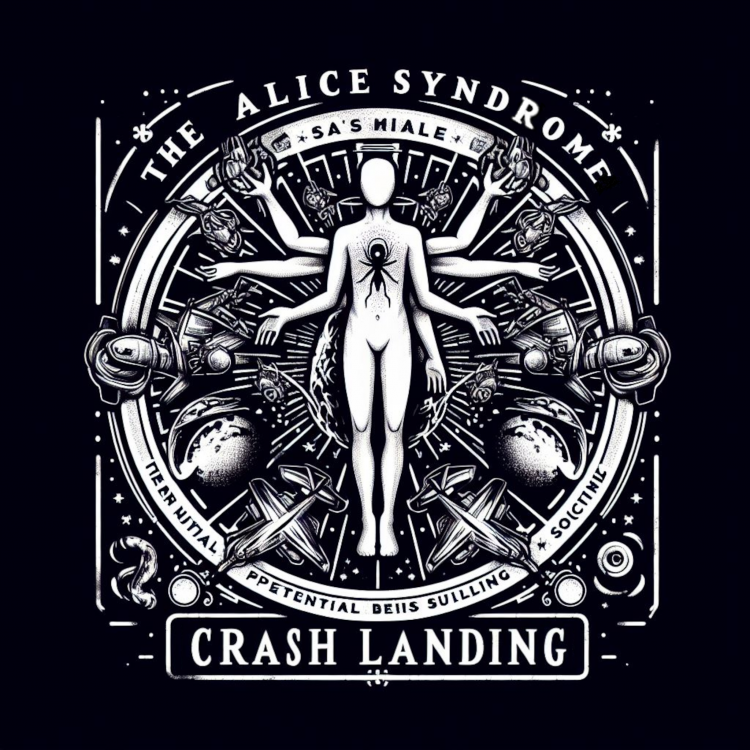
Welcome to George’s blog. I play keyboards in the Alice Syndrome, and I’m also very interested in psychology, spirituality and self-transcendence. Groovhead tends to write all our lyrics, which always touch on subjects that hit deep into my interests.

Crash landing is a song that explores the theme of human potential and its limitations. The lyrics of the song reflect our influences by philosophical and psychological concepts such as existentialism, and transhumanism. The lyrics of Crash landing reflect a sense of alienation and dissatisfaction with the human condition.
The song begins with the lines:
We are nothing more than vibrational frequencies
Held captive by physical form
We are potential, unrealised
We are potential, distracted
We are potential, corrupted
But we are, potential
These lines suggest that we view human beings as essentially spiritual or energetic beings that are trapped in material bodies that limit their possibilities. The repetition of the word “potential” implies that humans have the capacity to transcend their physical limitations and achieve a higher state of existence, but they are hindered by various factors such as distraction, corruption, or conditioning. We also express a sense of frustration and despair with the current state of humanity, as it describes humans as:
We are godhead, denied
We are petty, we are cruel
We are ego unleashed
We are petty
We are cruel
We are ego unleashed
We are spoilt children
These lines contrast the idea of human potential with human reality, showing how humans fail to live up to their divine nature and instead act selfishly, violently, and immaturely. The phrase “ego unleashed” suggests that humans are driven by their lower instincts and impulses, rather than their higher aspirations and values. The song also criticizes the social and political systems that control and manipulate humans, as it states:
We are the distracted
We are the conditioned
We are the controlled
We are the led
These lines imply that humans are not free to pursue their true potential, but rather are subjected to various forms of indoctrination, propaganda, and coercion that keep them in a state of ignorance and conformity.
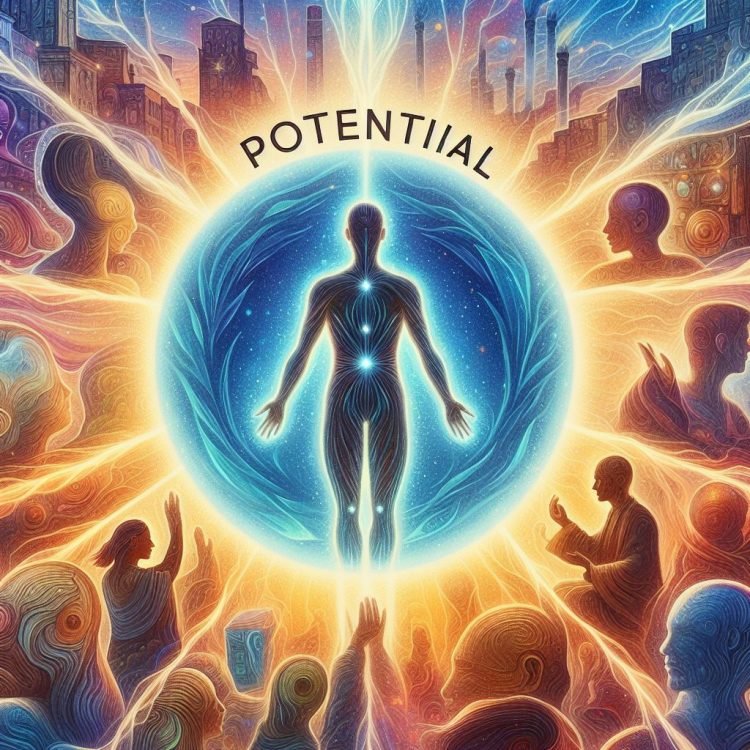
The song also expresses a sense of urgency and hope for change, as it repeats:
Unrealised, potential
Unrealised, potential
Unrealised, potential
Unrealised, potential
These lines emphasize the gap between what humans are and what they could be, as well as the possibility of closing that gap if humans awaken to their true nature and purpose. The song ends with the lines:
We are so close, but not quite there
Held back by our inherent flaws
But we are, potential
These lines suggest that despite all the obstacles and challenges that humans face, they still have a chance to overcome them and reach their full potential. However, they also acknowledge that humans have inherent flaws that make this task difficult and uncertain.
The theme of human potential and its limitations is not unique to The Alice Syndrome. Many other musicians and philosophers have explored this topic in different ways. For example:
Pink Floyd’s album The Wall (1979) depicts the psychological breakdown of a rock star who isolates himself from society and builds a metaphorical wall around himself to cope with his trauma and alienation. The album criticizes the oppressive forces that shape human behaviour and identity, such as war, education, religion, the media, and consumerism.
Jean-Paul Sartre’s existentialist philosophy argues that humans are free to create their own meaning and values in a world that is absurd and devoid of inherent purpose. However, this freedom also entails responsibility and anxiety, as humans have to face the consequences of their choices and actions.
Ray Kurzweil’s transhumanist vision proposes that humans can enhance their physical and mental capacities through technology and artificial intelligence. He predicts that humans will eventually merge with machines and achieve a state of singularity where they will transcend their biological limitations.

Jan 15
George’s Blog: Crash landing
This edition of George’s Blog discusses The Alice Syndrome trach Crash landing, which claims human potential is being stifled.
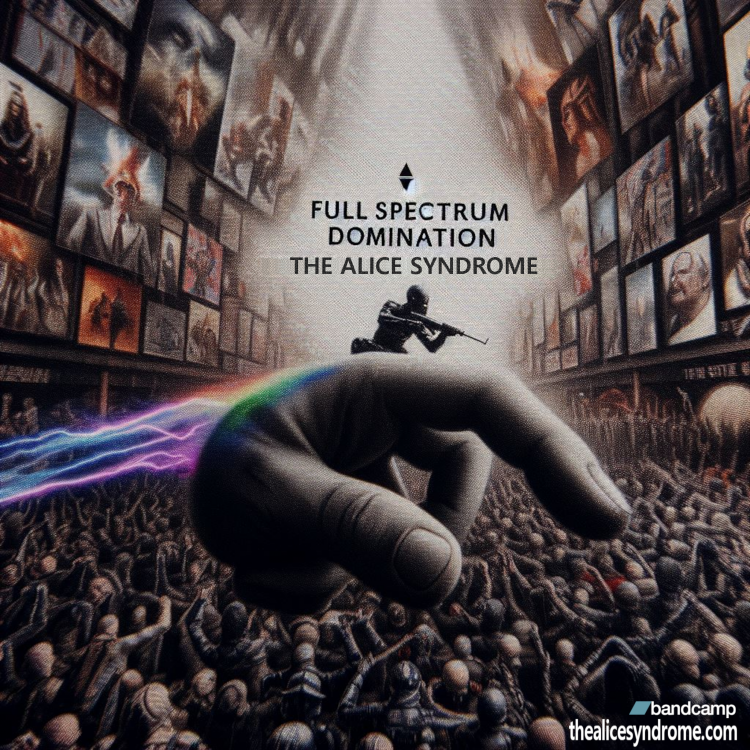
Welcome to George’s blog. I play keyboards in the Alice Syndrome, and I’m also very interested in psychology, spirituality and self-transcendence. Groovhead tends to write all our lyrics, which always touch on subjects that hit deep into my interests.
The following is a statement from Groovhead:
“,,,,,full spectrum domination was written in response to the the insidious , and seemingly inevitable rise of fascist right wing extremist ideologies that , inch by inch are begining to insinuate themselves across the globe , and impact on every aspect of our existence , no better exemplified by the rise in popularity of the poster boy of modern fascism donald trump ,and his surreal appointment to the presidency of the united states ,,,,,the term fsdis a tool by which control is exerted from the earliest of ages so that the idealogies of the far right are absorbed and become engrained in the individual so that they know no other ways of thinking ,,,,think of north korea but with better hair cuts , this can be seen in the usa with the power of right wing christian fundamentalists deciding what can m or cannot be taught in schools , books being banned in libraries , to the teaching of jewish children to hate palestinians from the earliest of ages , all sanctioned and encouraged by thier respective governments .trump was the ideal choice to illustrate this , as he has made no secrets of his desire to control through an authroitarian regime , his marginalistation and demonisation of certain groups ,and his many close links to several hardcore right wing groups , his popularist rhetoric playing on the weaknesses , fears and prejudices of his hardcore maga followers ,even going so far as to quote from mein kampf ,,sort of gives a clue to what lies beneath .Despite the song being specifically about trump , the song uses him as an example of our gradual slip towards a more authoritarian right wing existence , where compliance is all , and the ‘others ‘are vilified and scapegoated , where the erosion of freedom is the norm , and our seeming inability and impotence or apathy to do anything about it ,,,,we , in the alice syndrome , are proud to be part of the ‘others ‘ ,,,,no comply , groovhead”
Our track full spectrum domination is a dark and dystopian song that explores the themes of power, control and resistance. It’s really an anthem for resistance, a song which promotes the rights of the individual against the rights of the state. The video is a collage of images and clips that depict scenes of resistance to oppression and surveillance, such as protests and rebellion, over a soundscape that showcases Trumps “build the wall” period, while refrains of the star-spangled banner drift in the background. It also highlights the beauty of nature, and raises concerns about the immorality of globalist capitalism.
We use audio samples of Donald Trump and the USA anthem in the track to create a dystopian and satirical critique of American imperialism and militarism. The track combines a determined beat with distorted guitar riffs, synth electro sounds, deep bass, and vocal samples from Donald Trump’s speeches and interviews from the time of “Who’s going to build the wall”, to parody the political system in general.
The track begins with the USA anthem played in a distorted and dissonant way, followed by Trump’s voice saying “We will build the wall”. The track then alternates between segments of Trump’s voice and segments of other political commentators, who imply Trump is insane. We try to get the message across that this is a sideshow, that we never get to see what’s really going on.
The use of trump audio and the USA anthem in this track can be interpreted as a form of political parody and protest music, which aims to expose and ridicule the contradictions and absurdities of Trump’s rhetoric and policies. We try to use humour to challenge Trump’s discourse of nationalism, jingoism, and political machoism,
Full spectrum dominance is a term used by the US Department of Defence to describe its military strategy of achieving control over all domains of warfare, including land, sea, air, space, and cyberspace (US Department of Defence, 2001). We use this title to provide a comparison in terms of each of the political factions desire to have total control to that of the global militarist proposition of full spectrum dominance. We are trying to show that we are not only being lied to, but we are being encouraged to be divisive, and ultimately hate others.
The Alice Syndrome often uses musical sampling in our tracks, which is “the act of taking a portion of one sound recording and reusing it as an instrument or element of a new recording” (McLeod & DiCola, 2011, p. 1). We use sampling as a creative and expressive technique to create new meanings and associations from existing sounds. By sampling Trump’s voice and the USA anthem, we transform them into musical instruments that convey our political message. This also creates a contrast between the original meanings and contexts of these sounds and the new ones that we create. For example, by distorting the USA anthem, we subvert its patriotic and celebratory meaning into a dystopian and ironic one. By juxtaposing Trump’s voice with other commentators, we create a dialogue that exposes the ludicrous extremes that politicians and political activists get up to everywhere.
Full Spectrum Domination is a powerful and provocative piece of music that challenges the listeners to think critically about the issues of human rights, political power, social control and manipulation, and resistance in the contemporary world. The track uses a combination of sonic and visual elements to create a unique and compelling aesthetic experience that conveys a message of dissent and opposition to the oppressive practices of political full spectrum domination. The track is a form of artistic expression and social commentary that engages with the political and ethical dimensions of human existence.
References
McLeod, K., & DiCola, P. (2011). Creative license: The law and culture of digital sampling. Duke University Press.
Street, J. (2012). Music and politics. Polity Press.
US Department of Defense. (2001). Joint vision 2020: America’s military: Preparing for tomorrow. https://www.hsdl.org/?view&did=4395
Jan 12
George’s Blog: Full spectrum domination
George’s Blog on The Alice Syndrome website. This time, I’m looking at our track full spectrum domination and describing what it means to me.
Welcome to George’s blog. I play keyboards in the Alice Syndrome, and I’m also very interested in psychology, spirituality and self-transcendence. Groovhead tends to write all our lyrics, which always touch on subjects that hit deep into my interests.
Haiku Priestess sings
Of love and loss and madness
In her broken voiceShe paints with words and sounds
A world of dark and light
Where nothing is as it seemsShe invites us to join her
In her twisted dreams and visions
Where we can find ourselvesHaiku Priestess knows
The secrets of the soul and the heart
She shares them with her art
Haiku Priestess
Our track, “Haiku Priestess”, is a tribute to the Japanese art of haiku, a form of short poetry that captures the essence of a moment. The song explores themes such as nature, beauty, spirituality and death, using imagery and metaphors inspired by haiku.
The singer, Koshka Pravda, plays the role of a priestess who guides the listener through a journey of emotions and sensations, from the serene to the sublime. The marvellous Alex accompanies Koshka with tuneful background melodies.
The music matches the mood of the lyrics, with soft tunes, heavy riffs and atmospheric sounds.
The video that accompanies Haiku Priestess was put together by Jim and is a stunning visual representation of the song’s themes and mood. It uses a mix of animation and live-action footage to create a surreal and captivating atmosphere.
The song follows the journey of a woman trapped in a cycle of violence, pain, and rebirth. She encounters various symbolic elements, such as a snake, a flower, a gun, and a mask, that reflect her inner turmoil and transformation.
There are also references to Japanese culture and mythology, such as the haiku poems, the cherry blossoms, and the kitsune mask. It enhances the overall song by adding more layers of meaning and emotion to the lyrics and the music.
The Alice Syndrome – Haiku Priestess
Wisdom of the haiku
Haiku Priestess explores the inner turmoil of a woman who is trapped in a cycle of self-destruction and despair. The lyrics suggest that she is suffering from a mental disorder that makes her perceive reality in a distorted way, such as seeing herself as a monster or feeling like she is drowning.
She also expresses a sense of loneliness, isolation and hopelessness, as she feels that no one can understand or save her from her pain. She compares herself to a haiku priestess, a poetic figure who writes short poems that capture the essence of nature and emotion, but also implies a sense of futility and resignation.
The song relates to the human condition by showing how some people struggle with their own demons and how they cope with their suffering through art and creativity. The song also raises questions about the meaning and purpose of life, as well as the role of faith and spirituality in healing. The song portrays potential great sadness, but is also beautiful and poignant, as it conveys a deep and complex emotion that will resonate with many listeners.
Haiku Priestess is a powerful expression of the struggle to heal from trauma. The lyrics could be interpreted as the singer, trying to do Jungian type shadow work, which is a process of confronting and integrating the repressed aspects of one’s psyche.
Shadow work
Shadow work is a psychological process of healing and integration. It is based on the idea that we all have parts of ourselves that we repress or deny due to negative or traumatic experiences, especially in childhood. These parts, called the shadow, are stored in the unconscious mind and affect our behaviour, emotions and relationships in ways that we are not aware of.
For instance, a child who suffers from abuse may develop anxiety and fear, and may reject the part of themselves that feels vulnerable and hurt. This part becomes a shadow that influences their self-esteem, trust and coping mechanisms throughout their life. They may resort to unhealthy habits, such as alcoholism, or other addiction, to escape from their pain and avoid facing their shadow.
Shadow work involves uncovering and confronting the shadow, and accepting it as a valid and valuable part of ourselves. By doing so, we can heal the wounds that caused us to split off from our wholeness, and reclaim the aspects of ourselves that we have lost or neglected. Shadow work can either be voluntary, where the individual consciously looks inside themselves to explore their unconscious selves, it can also be involuntary, when the shadows surface into the conscious mind, often in ways that threaten to overwhelm the person concerned.
Shadow work can help us to overcome our fears, insecurities and limiting beliefs, and to develop more self-awareness, compassion and authenticity. As Jung (1959) said, “One does not become enlightened by imagining figures of light, but by making the darkness conscious” (p. 326).
There are many methods and techniques for doing shadow work, such as journaling, meditation, dream analysis, art therapy, psychotherapy, and even by writing haiku’s. The goal is to create a safe and supportive space where we can explore our inner world and discover the hidden parts of ourselves that need our attention and acceptance. By doing so, we can integrate our shadow into our conscious personality, and achieve a more balanced and harmonious state of being.
Becoming overwhelmed
However, the singer finds that the feelings that are being uncovered are too overwhelming and painful to face. She feels like she is drowning in a sea of darkness and despair.
Becoming overwhelmed can be very dangerous for the individual, people can often lose their judgement and control when overwhelmed, leading to dramatic and desperate behaviour.
Shadow work can therefore be challenging and risky, depending on one’s level of resilience and the support available. In fact, it is this concept of resilience, is really quite critical to shadow work.
Resilience
Resilience is the ability to cope with stress and adversity, and to bounce back from difficult situations (Southwick & Charney, 2012). It can be influenced by many factors, such as personality, genetics, environment, and life experiences.
One of the factors that can enhance resilience is one’s attitude towards the shadow work process. According to Rogers (1961), a person-centred approach that emphasizes compassion, acceptance, and understanding of oneself and one’s shadow can facilitate positive outcomes.
Rogers argued that when a person can accept all aspects of themselves, without judgement or denial, they can achieve a state of congruence, which is the alignment of one’s self-concept and one’s experience. It’s when an individual no longer denies their true self, and shadow work is the process of finding out this truth. Congruence can lead to greater self-esteem, creativity, and wellbeing.
However, not everyone has the same attitude or resources to engage in shadow work effectively. Sometimes, the environment can create additional challenges or barriers that limit one’s ability to cope with the shadow material.
For example, a person may face social stigma, discrimination, or oppression for expressing their shadow traits, or they may lack access to safe spaces, supportive relationships, or professional help. In these cases, shadow work can become overwhelming and harmful, rather than healing and empowering.
This is why it is often recommended that shadow work is done with the guidance and assistance of a counsellor or therapist, who can provide a caring and supportive environment for the person to explore their shadow (Johnson, 1993). A counsellor can also help the person identify and use their strengths and resources to overcome their challenges and achieve their goals.
Bury a friend
One popular song that deals with Jungian shadow work is Billie Eilish’s “bury a friend” (2019). The song explores the dark side of the singer’s personality, as well as her fears, insecurities, and self-destructive impulses. The lyrics suggest that she is confronting her shadow, which Jung defined as “the ‘dark side’ of our personality because it consists chiefly of primitive, negative human emotions and impulses like rage, envy, greed, selfishness, desire, and the striving for power” (Awaken, 2022).
For example, she sings: “What do you want from me? Why don’t you run from me? What are you wondering? What do you know?” These questions imply that she is trying to understand and integrate her shadow, rather than deny or repress it. She also sings: “I wanna end me. I wanna end them. I wanna, I wanna, I wanna … end me.” These lines reveal her suicidal and homicidal tendencies, which are part of her shadow. She also references nightmares, monsters, and demons, which are symbolic expressions of her unconscious fears and conflicts.
According to Jungian analysts, shadow work is “a method called Shadow work is practised through active imagination with daydreaming and meditation —the experience is then mediated by dialectical interpretation through narrative and art” (Wikipedia, 2023).
By writing and performing this song, Eilish is engaging in a form of shadow work that allows her to express and transform her dark emotions through art. She is also inviting the listeners to reflect on their own shadows and to face them with courage and curiosity.
Psychedelics and shadow work
A common situation, where a person unwittingly enters into shadow work and finds it overwhelming, is when they find themselves taking psychedelics without proper preparation. For example, after having randomly taken them at a music festival. It’s funny how many people offering such diversions seem to have so little understanding of what they are potentially causing their “friend” to go through, and how little advice or after care they offer.
Psychedelics are substances that alter perception, cognition, mood, and sense of self, often inducing mystical or transcendent experiences (Nichols, 2016). However, these experiences can also be terrifying, confusing, or traumatic, especially if the person is not prepared for them or does not have a supportive environment or guidance.
This is because our shadows are not just lost and rejected aspects of our childhood selves. Jung spoke of the collective unconscious, and of the archetypes that dwell there and also influence us. Sometimes, those archetypes are the darkest of dark, and sometimes, during that “sweet trip”, it’s these that come forward.
Psychedelics can act as catalysts for shadow work, bringing to the surface the hidden or denied parts of oneself that need to be acknowledged and healed (Grof, 1985). However, this can also be overwhelming, as the person may face intense emotions, memories, fears, or fantasies that they are not ready to deal with.
Moreover, psychedelics can also tap into the collective unconscious, the shared psychic reservoir of humanity that contains the archetypes, symbols, myths, and patterns that shape our collective and individual psyche (Jung, 1959). These archetypes can be positive or negative, such as the hero, the mother, the trickster, or the shadow. The shadow archetype represents the dark side of human nature, the evil, immoral, or destructive impulses that we usually repress or deny (Jung, 1959). Sometimes, during a psychedelic trip, the person may encounter their own shadow or the collective shadow, which can be terrifying and disturbing.
Therefore, taking psychedelics without proper preparation can be a risky and dangerous endeavour. The person may not be aware of what they are getting into or what they may encounter during their trip. They may not have the psychological tools or resources to cope with the challenges or insights that arise. They may not have the support or guidance from someone who understands the nature and purpose of psychedelics and shadow work. Likewise, they may end up having a negative or harmful experience that leaves them traumatized, confused, or worse.
As one researcher put it: “Psychedelics are not for everyone. They’re not even for most people. They’re only for people who are willing to take a serious look at themselves and their lives” (Pollan, 2018).
The impact of resilience
Let us consider some examples of how shadow work can be done differently depending on one’s resilience and environment.
Suppose a person has a shadow trait of anger that they have repressed for a long time because they were taught that anger is bad and unacceptable. If this person has a high level of resilience and a supportive environment, they may be able to acknowledge and express their anger in healthy ways, such as through art, music, or physical activity. They may also be able to understand the root causes of their anger and address them constructively. They may see their anger as a source of energy and motivation, rather than as a problem or a threat.
On the other hand, if this person has a low level of resilience and an unsupportive environment, they may struggle to cope with their anger and may lash out at others or themselves in destructive ways. They may feel guilty, ashamed, or afraid of their anger and try to suppress it even more. They may see their anger as a sign of weakness or failure, rather than as an opportunity for growth.
Shadow work can be a beneficial or detrimental process depending on one’s level of resilience and the support available. Resilience can be enhanced by adopting a compassionate, accepting, and understanding attitude towards oneself and one’s shadow, as suggested by Rogers (1961). However, sometimes the environment can pose challenges or threats that make shadow work difficult or dangerous. In these cases, it is advisable to seek professional help from a counsellor who can provide a safe and supportive space for shadow work.
References
Awaken. (2022). A definitive guide to Jungian shadow work. Retrieved from https://awaken.com/2022/01/a-definitive-guide-to-jungian-shadow-work/
Eilish, B., & O’Connell, F. (2019). Bury a friend [Recorded by Billie Eilish]. On WHEN WE ALL FALL ASLEEP, WHERE DO WE GO? [Album]. Darkroom/Interscope Records.
Grof, S. (1985). Beyond the brain: Birth, death and transcendence in psychotherapy. State University of New York Press.
Jung, C.G. (1959). The archetypes and the collective unconscious. Routledge & Kegan Paul.
Jung, C.G. (1958). The undiscovered self: Present and future. Routledge & Kegan Paul.
Johnson R.A. (1993). Owning your own shadow: Understanding the dark side of the psyche. HarperOne.
Nichols D.E. (2016). Psychedelics. Pharmacological Reviews 68(2):264-355.
Pollan M. (2018). How to change your mind: What the new science of psychedelics teaches us about consciousness, dying, addiction, depression, and transcendence. Penguin Press.
Rogers, C.R. (1961). On becoming a person: A therapist’s view of psychotherapy. Houghton Mifflin.
Southwick S.M., & Charney D.S. (2012). Resilience: The science of mastering life’s greatest challenges. Cambridge University Press.
Wikipedia. (2023). Shadow (psychology). Retrieved from https://en.wikipedia.org/wiki/Shadow_%28psychology%29
Dec 30
George’s Blog: Haiku Priestess
Welcome to George’s blog. I play keyboards in the Alice Syndrome, and I’m also very interested in psychology, spirituality and self-transcendence. Groovhead tends to write all our lyrics, which always touch on subjects that hit deep into my interests. Haiku Priestess Our track, “Haiku Priestess”, is a tribute to the Japanese art of haiku, a …
















